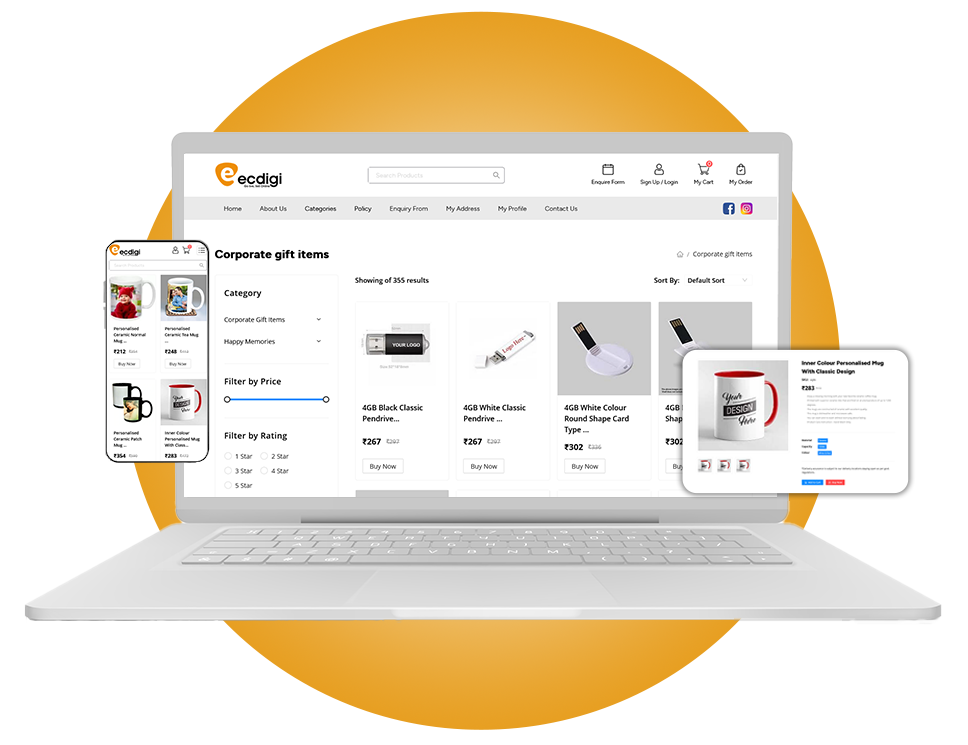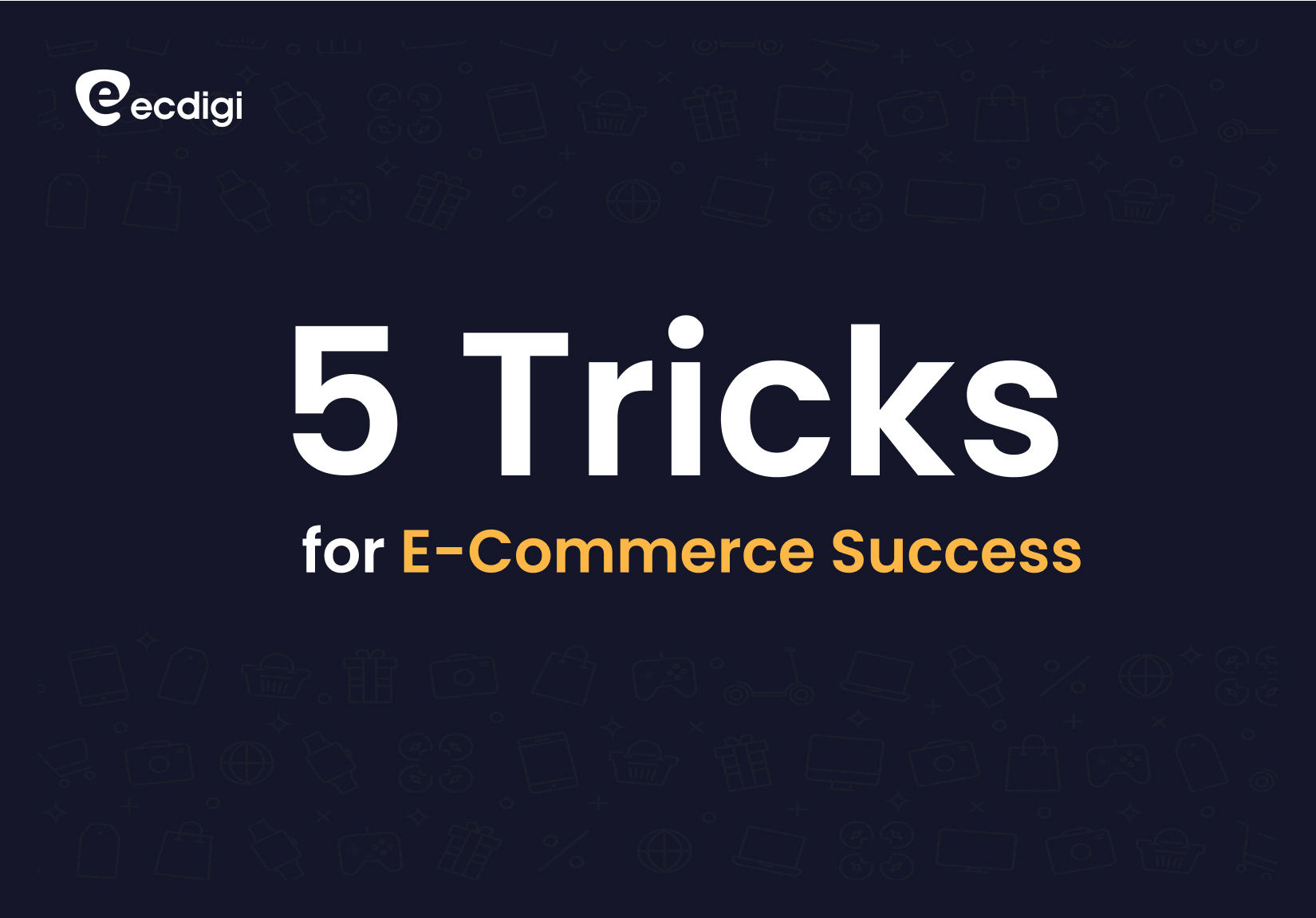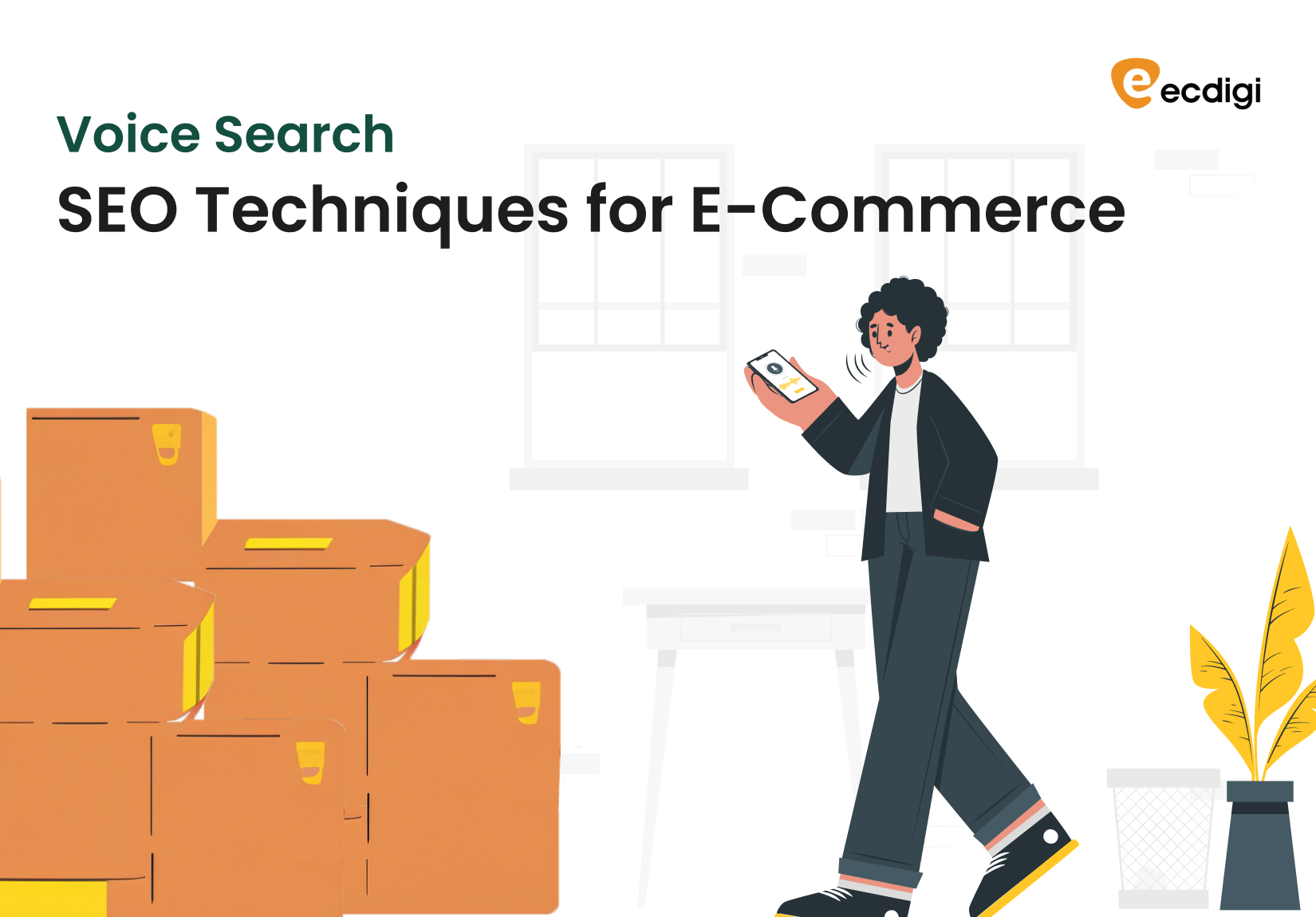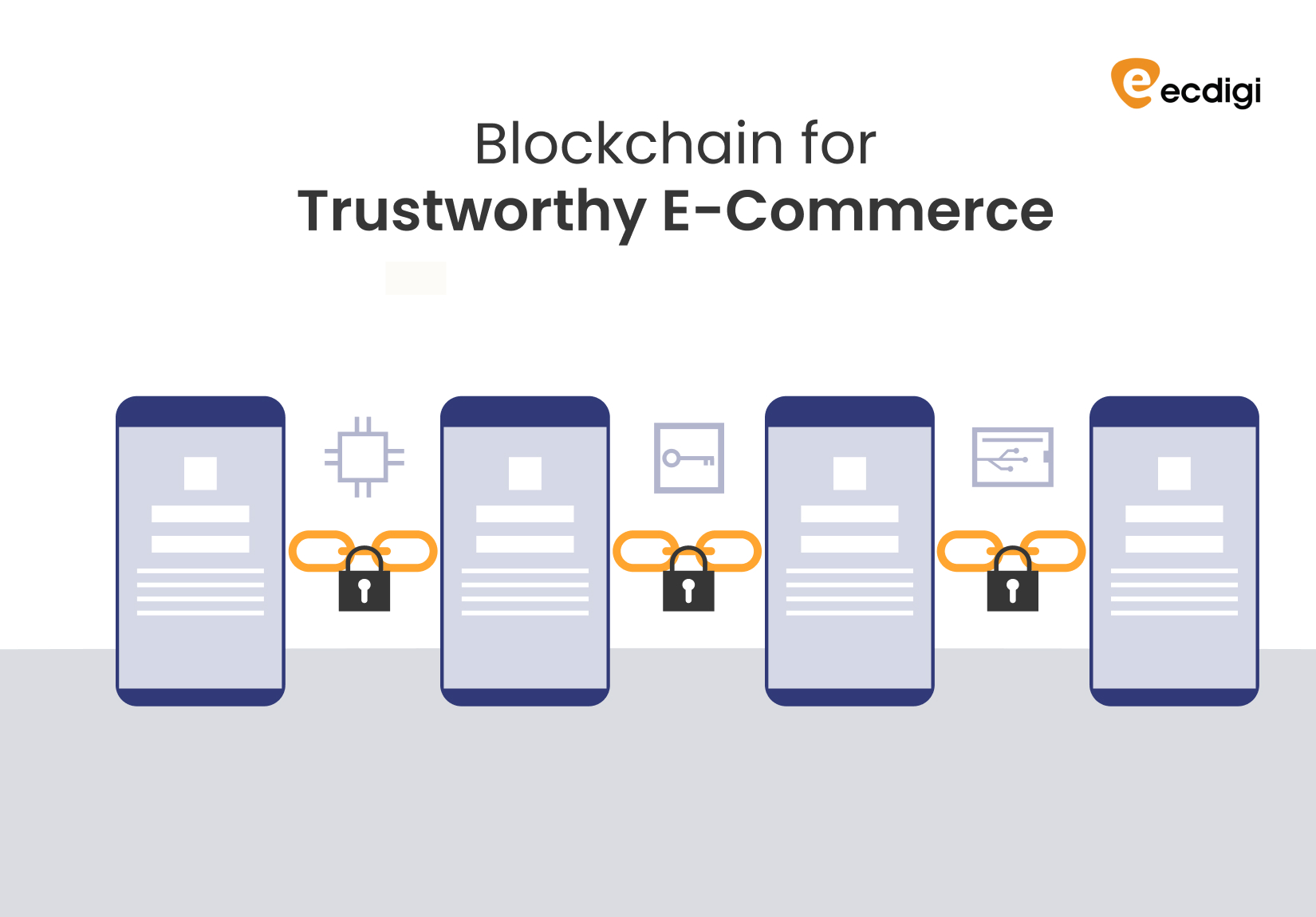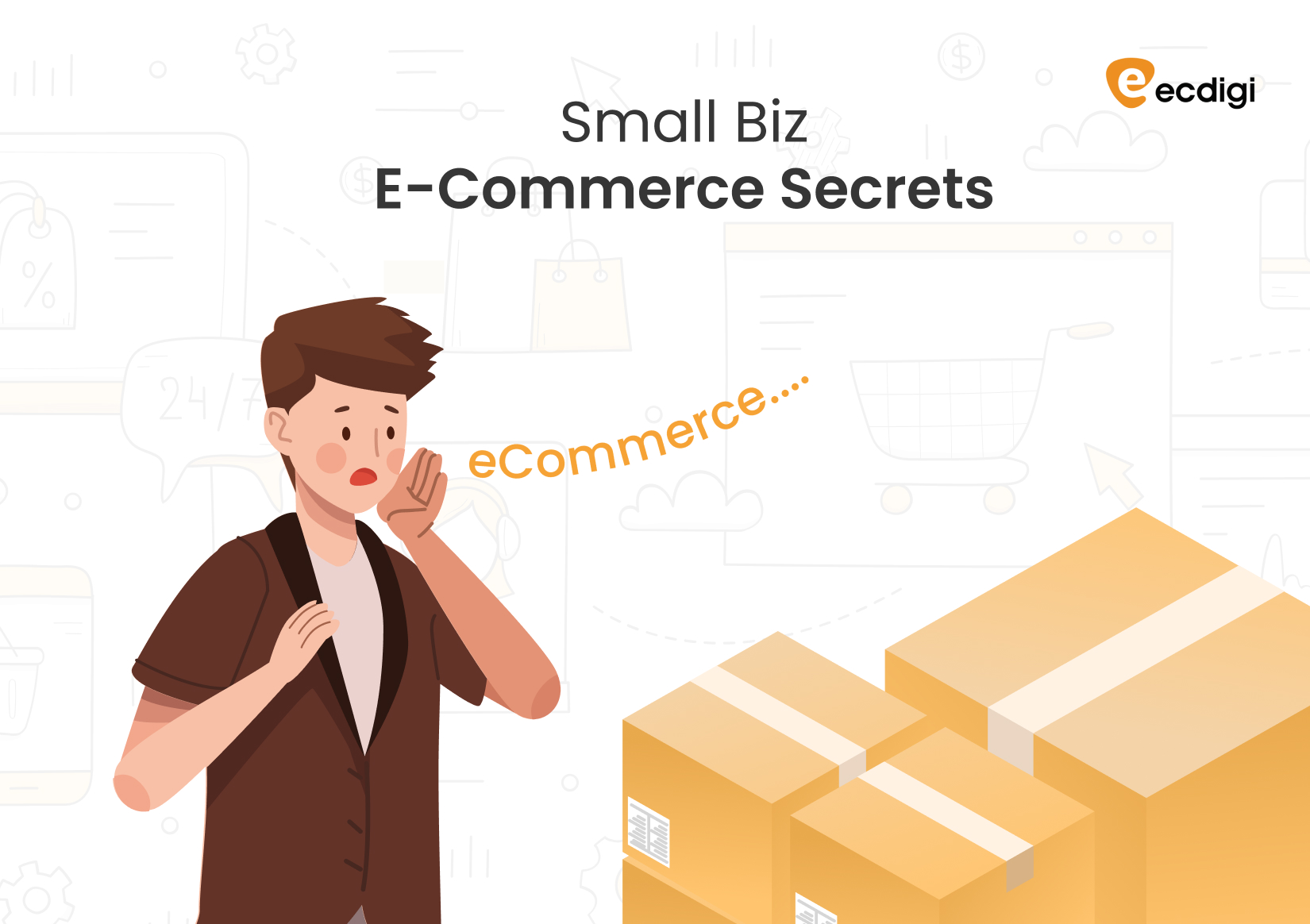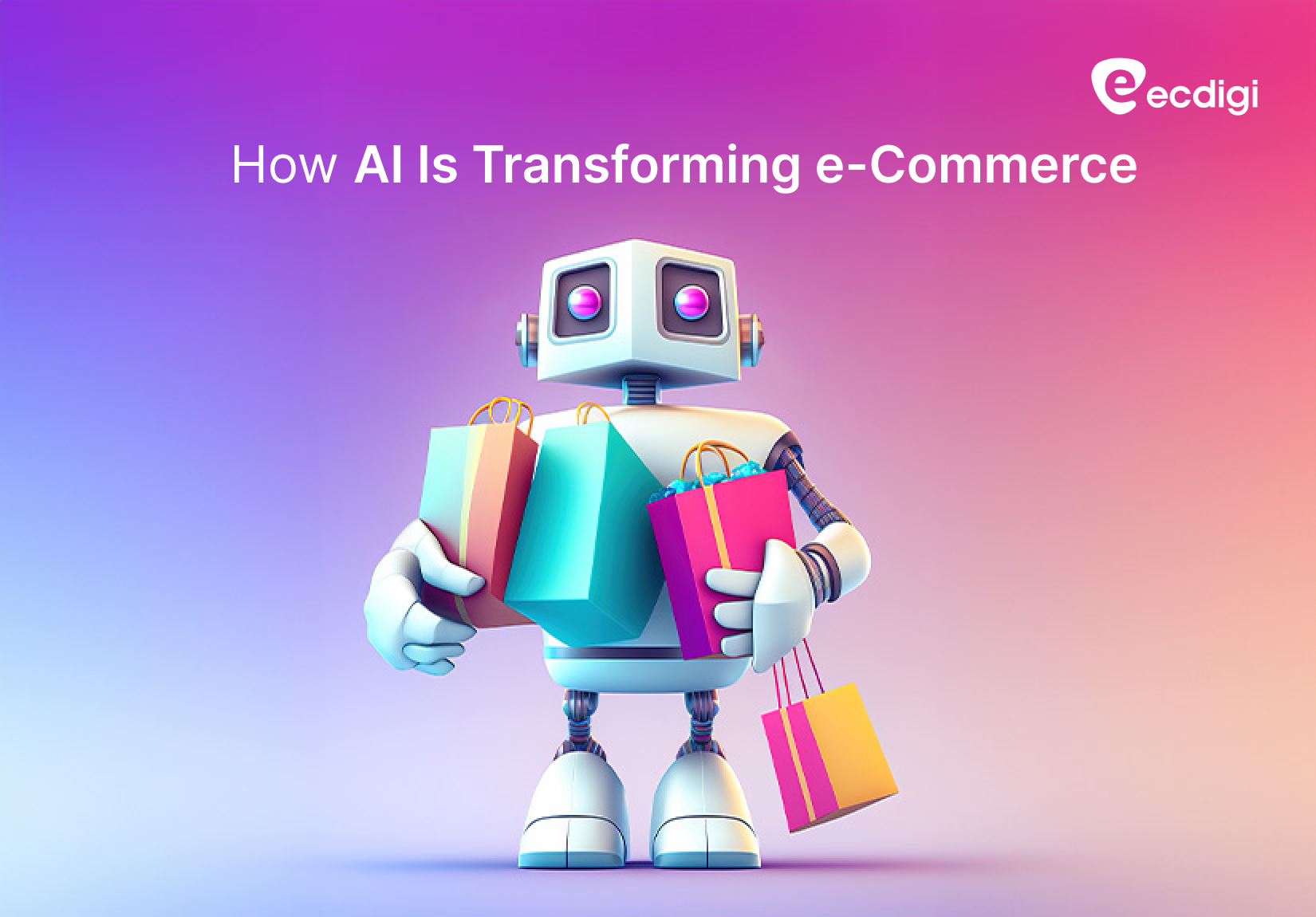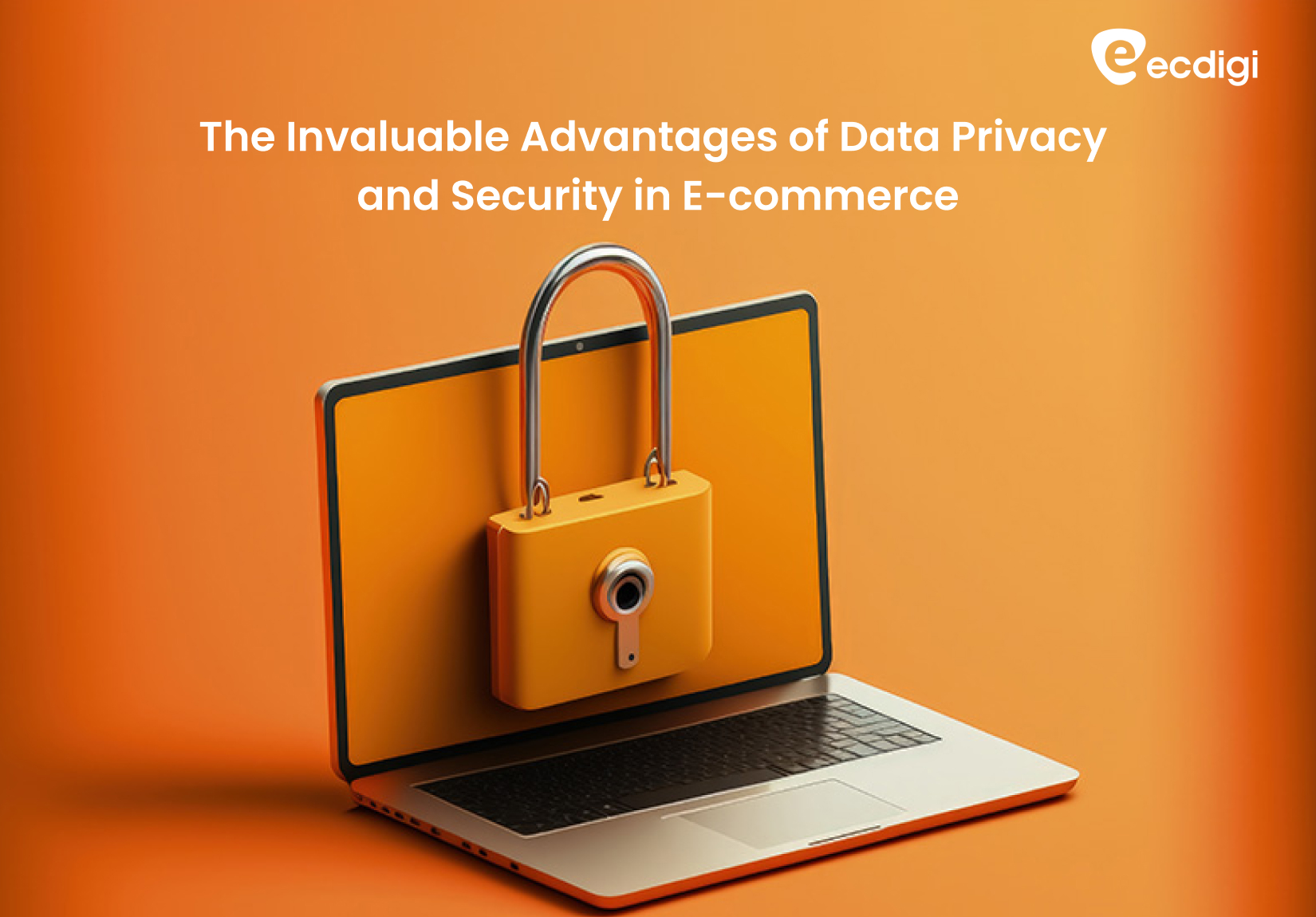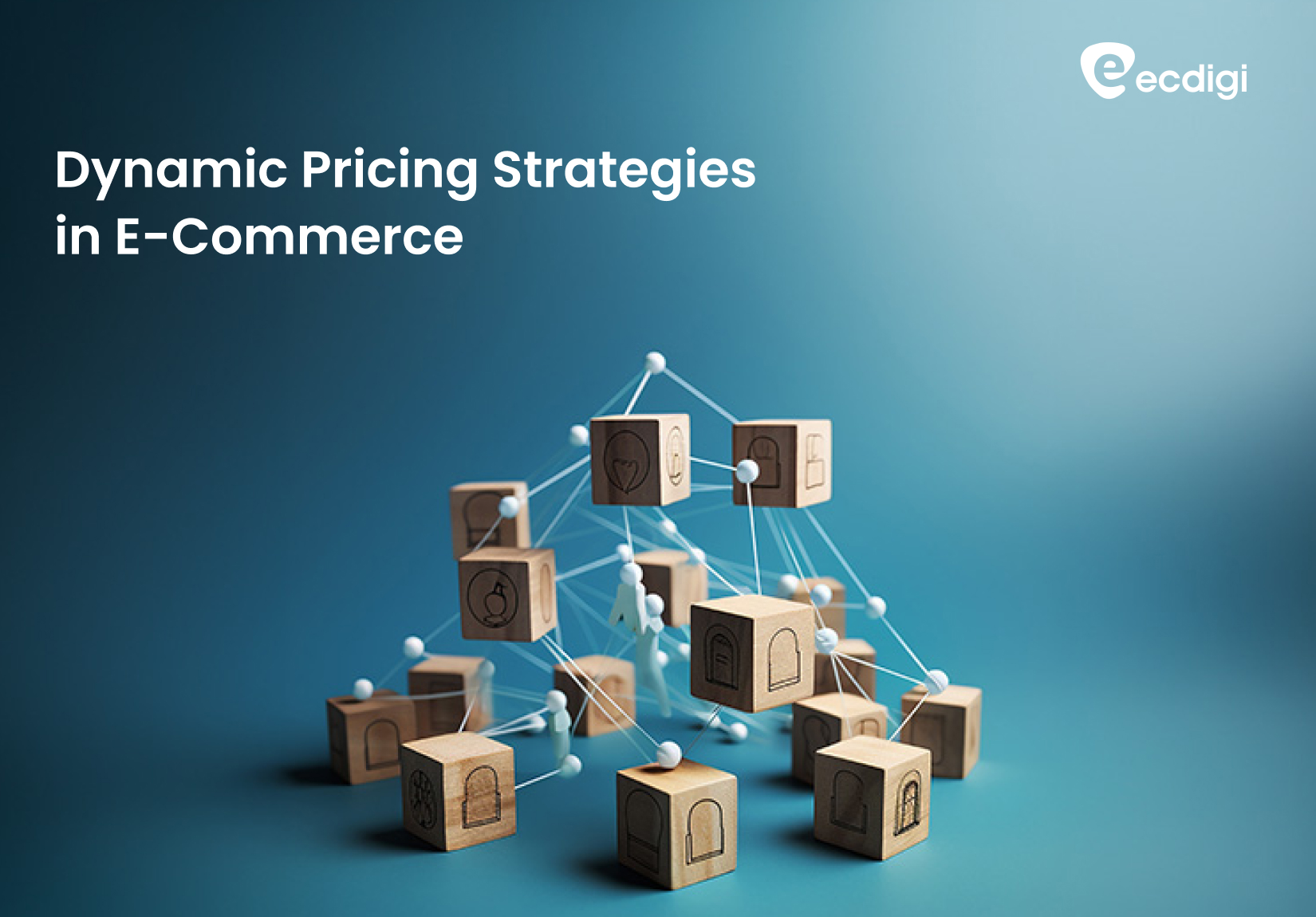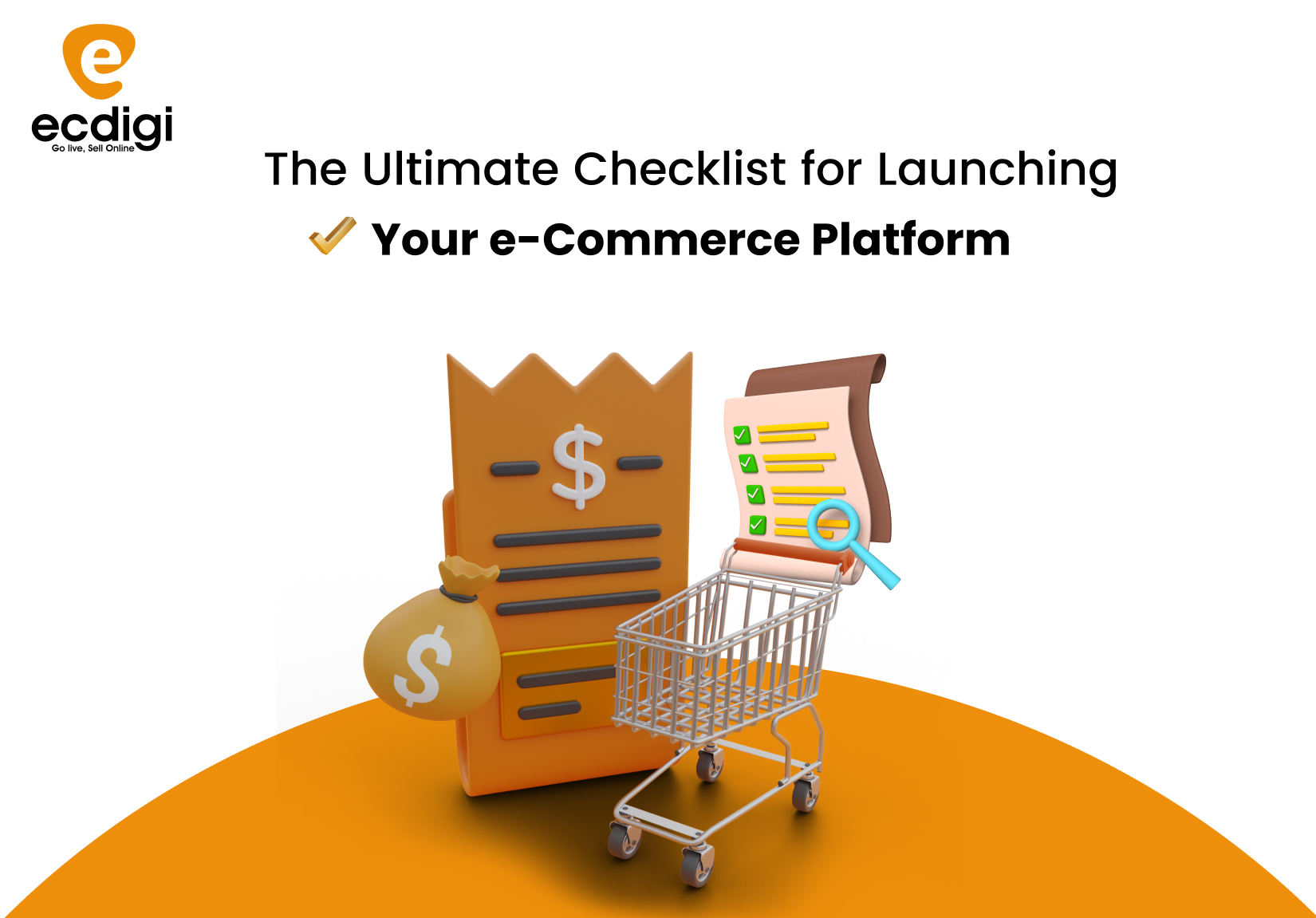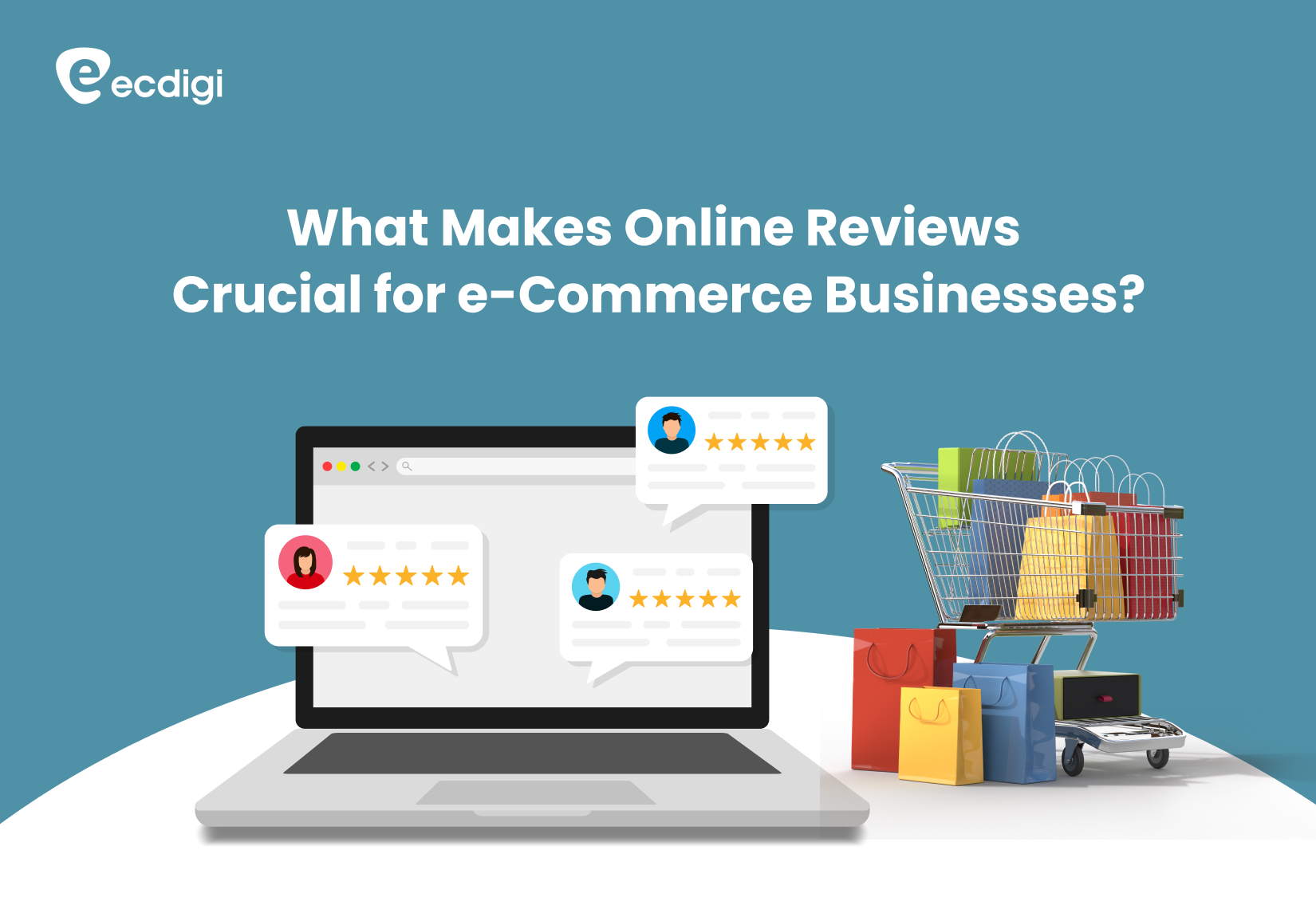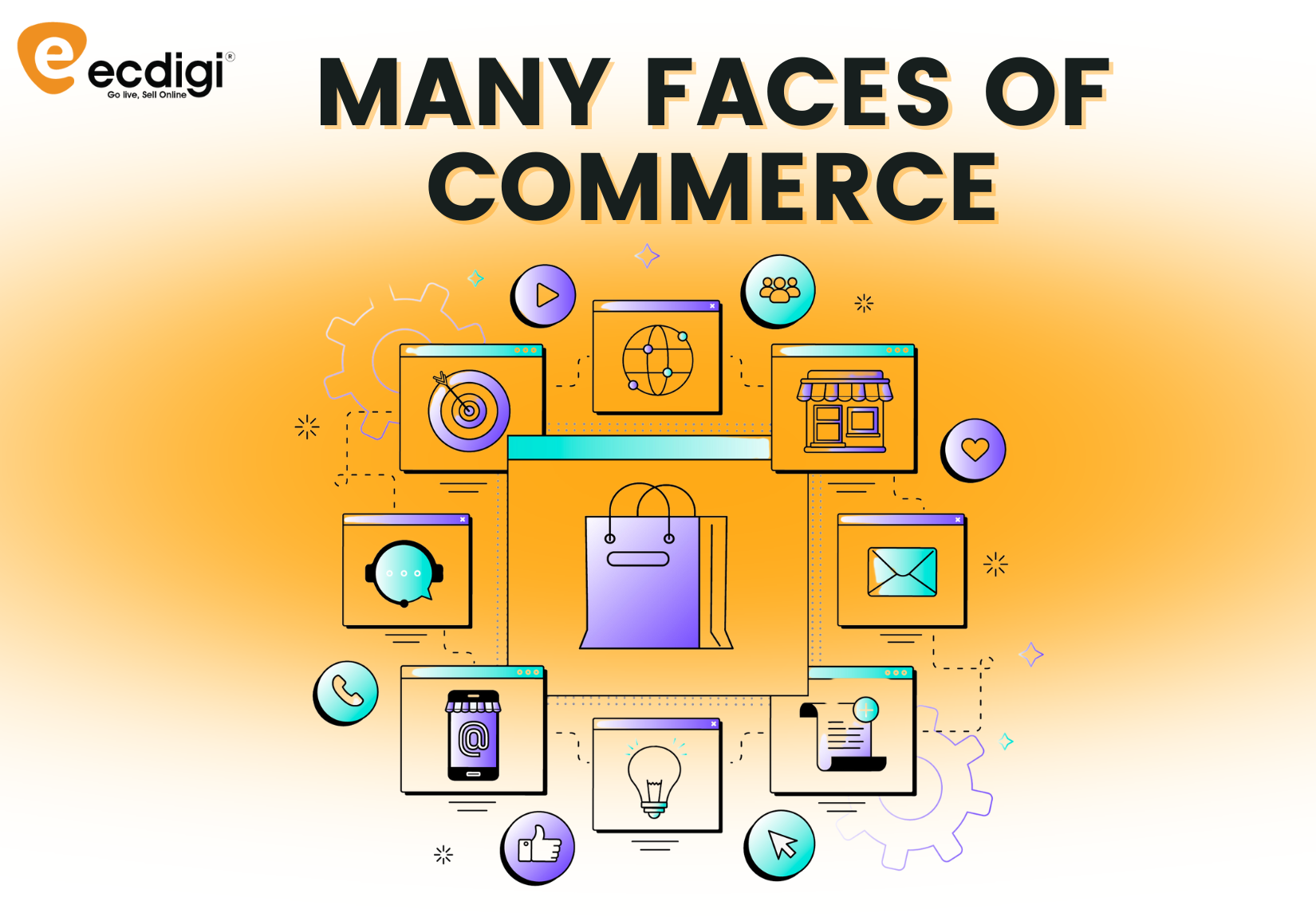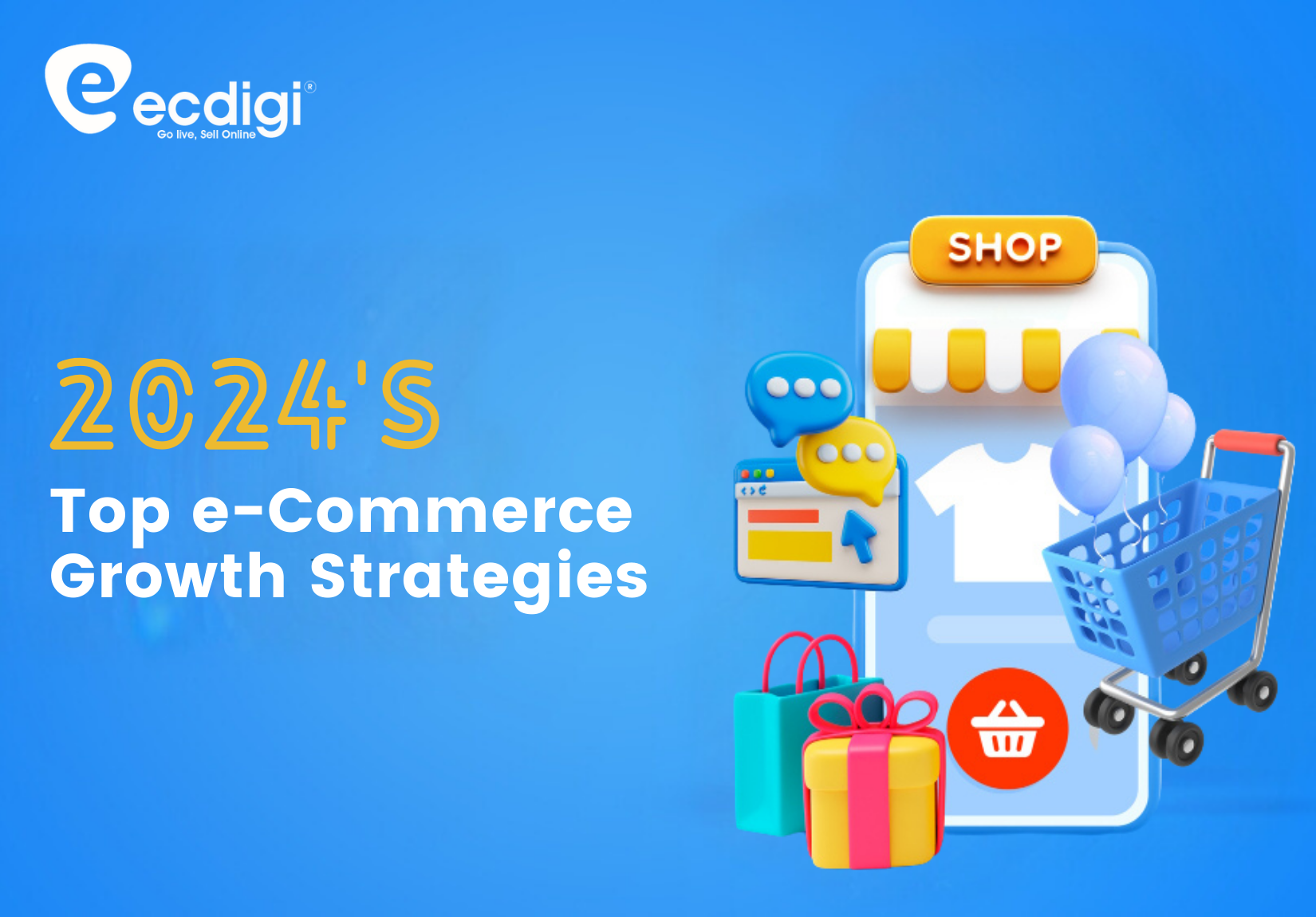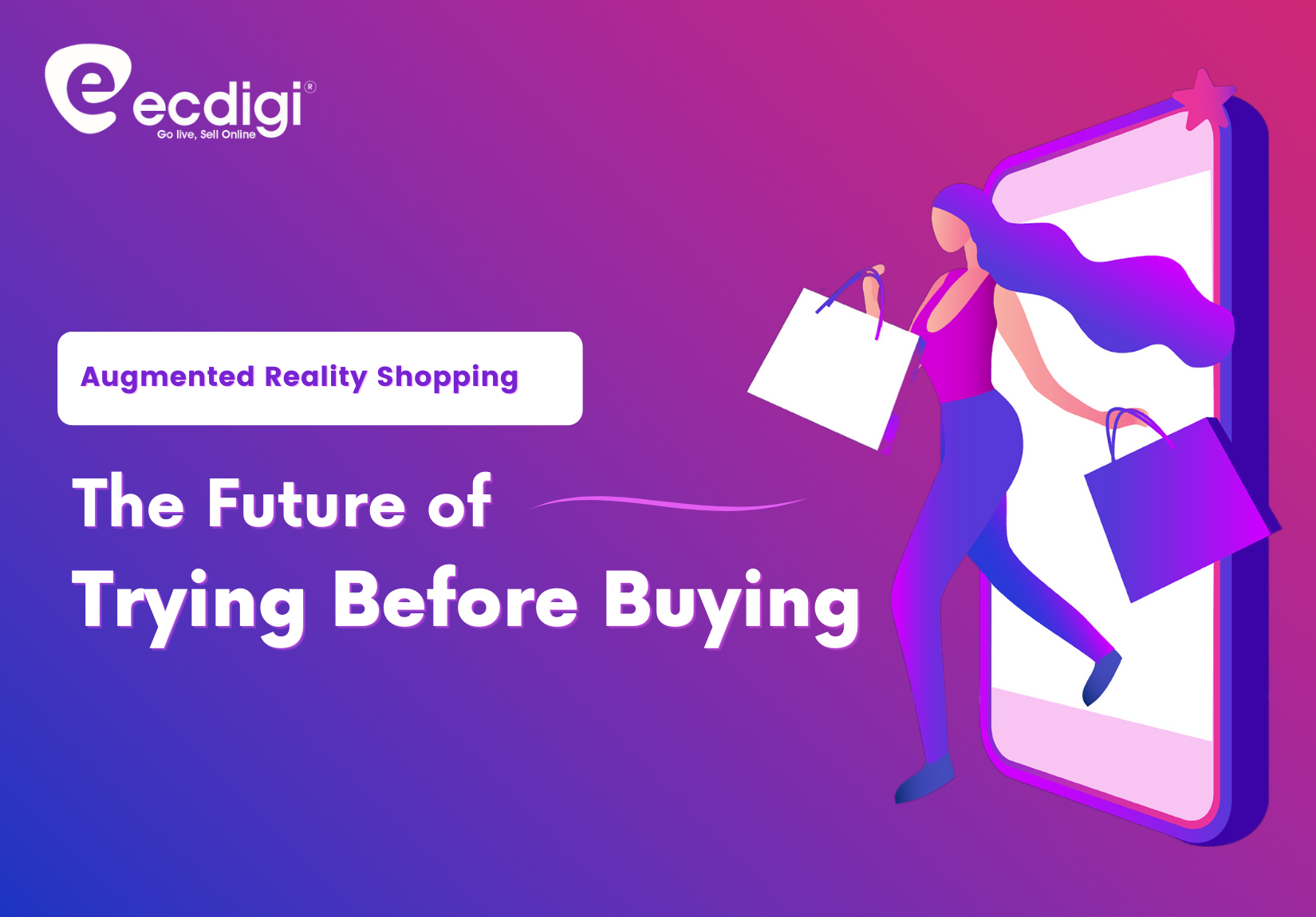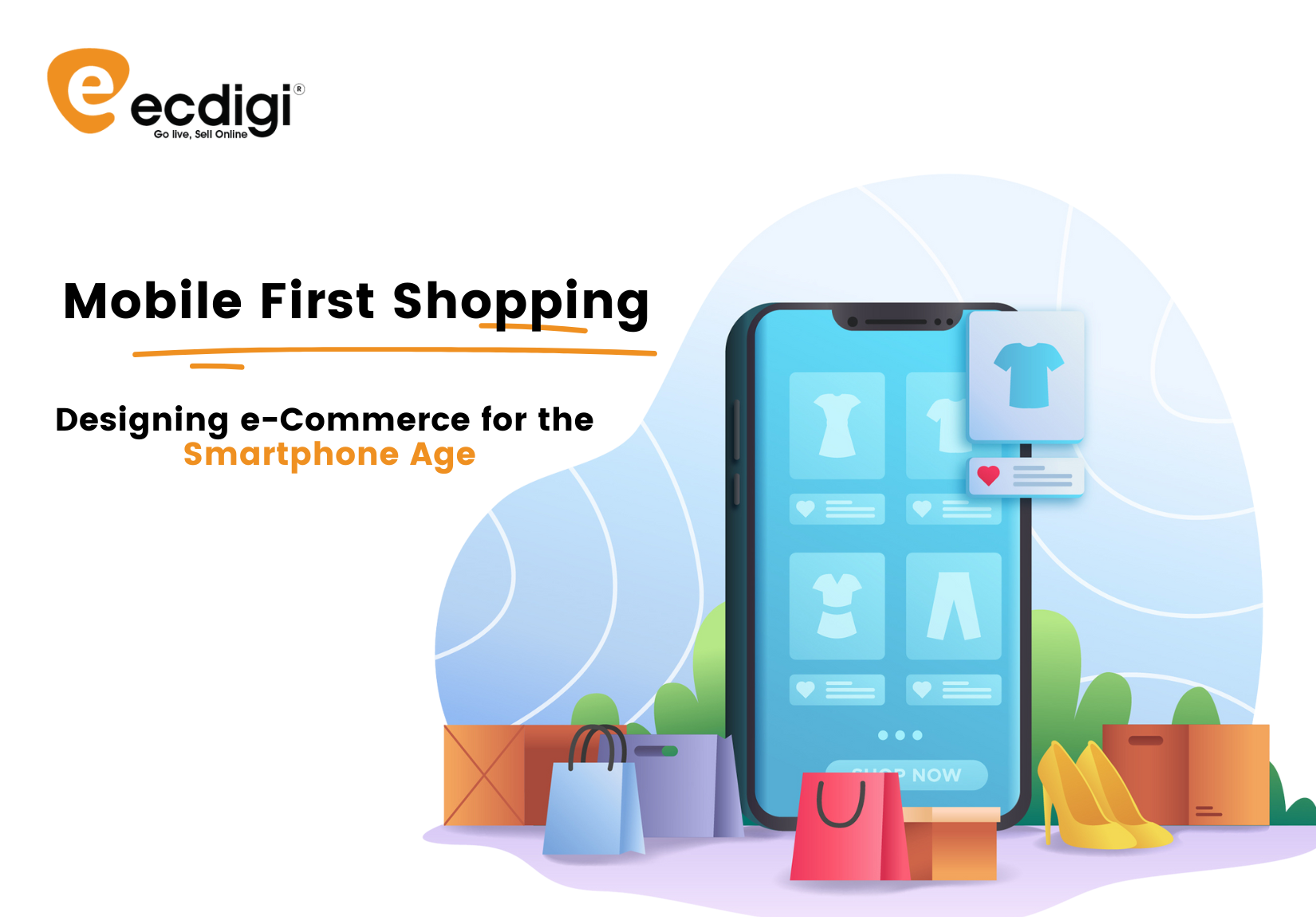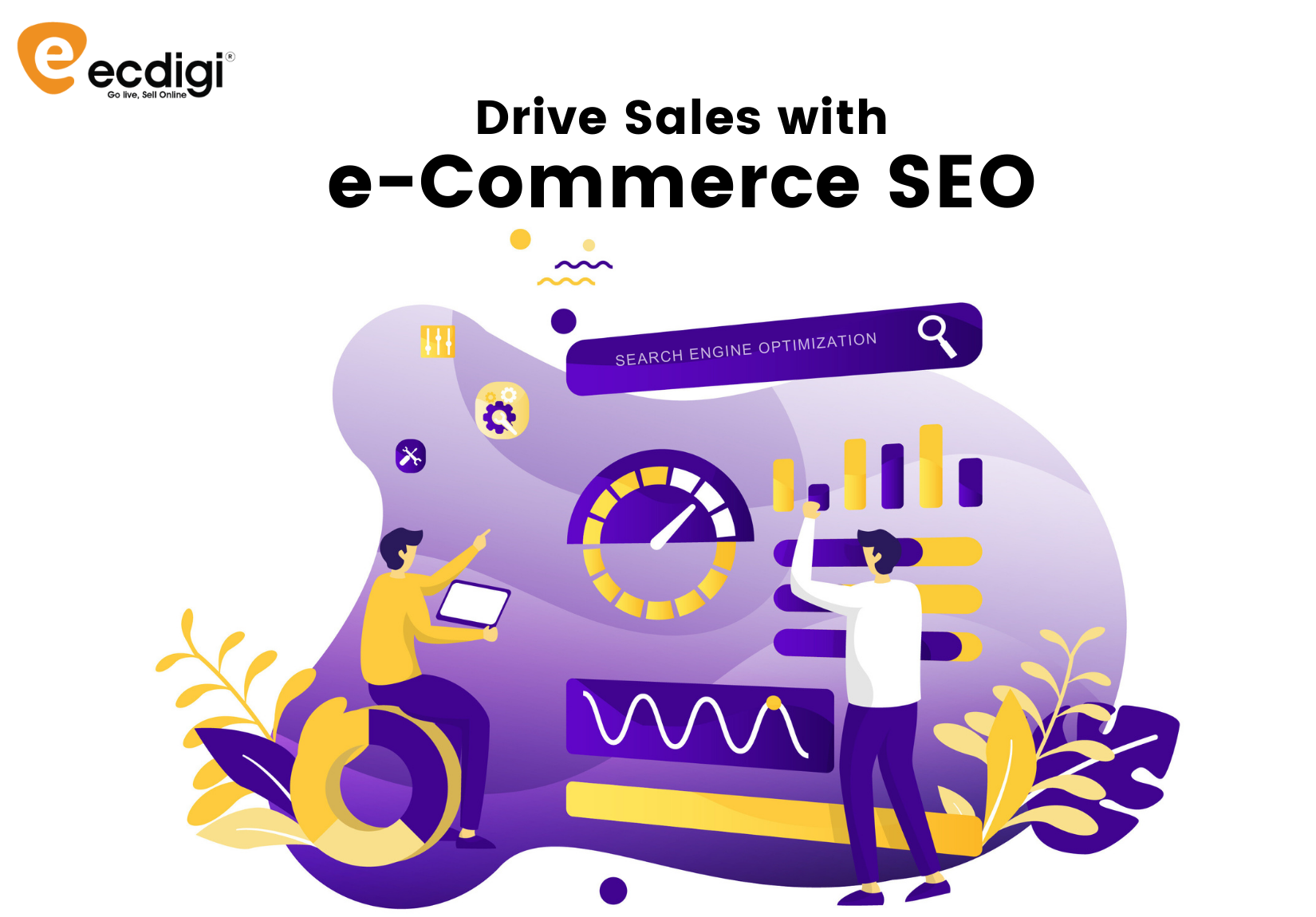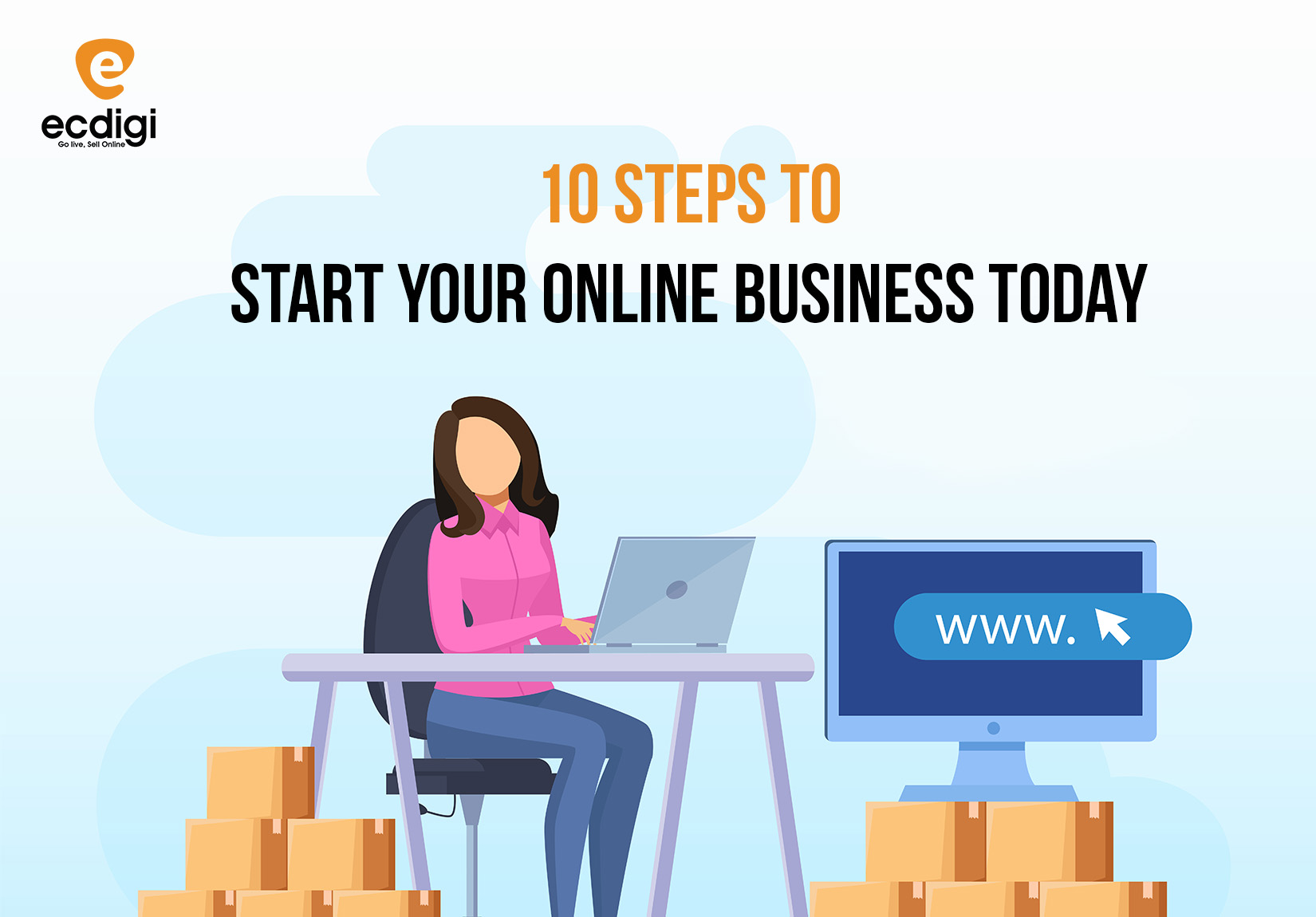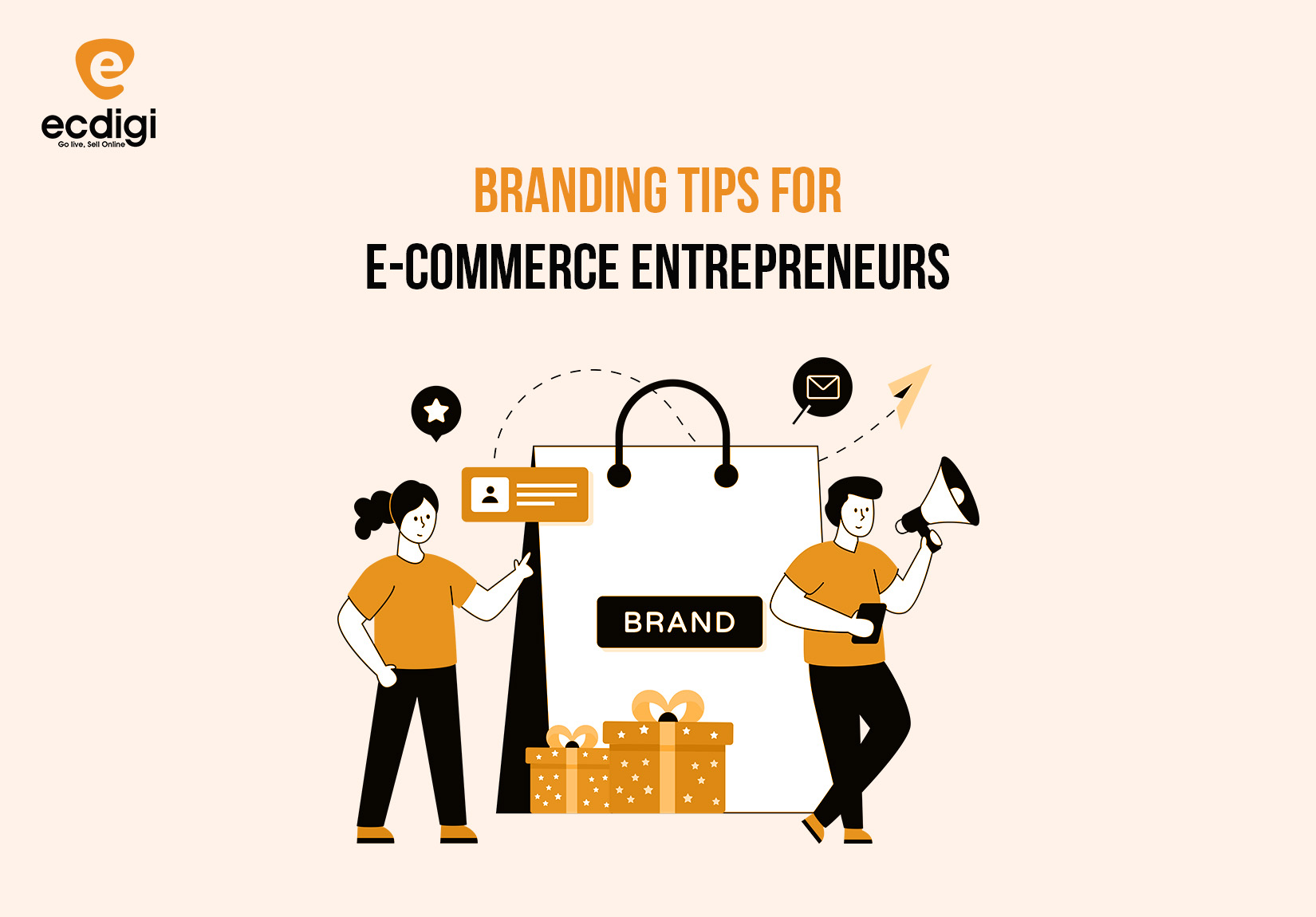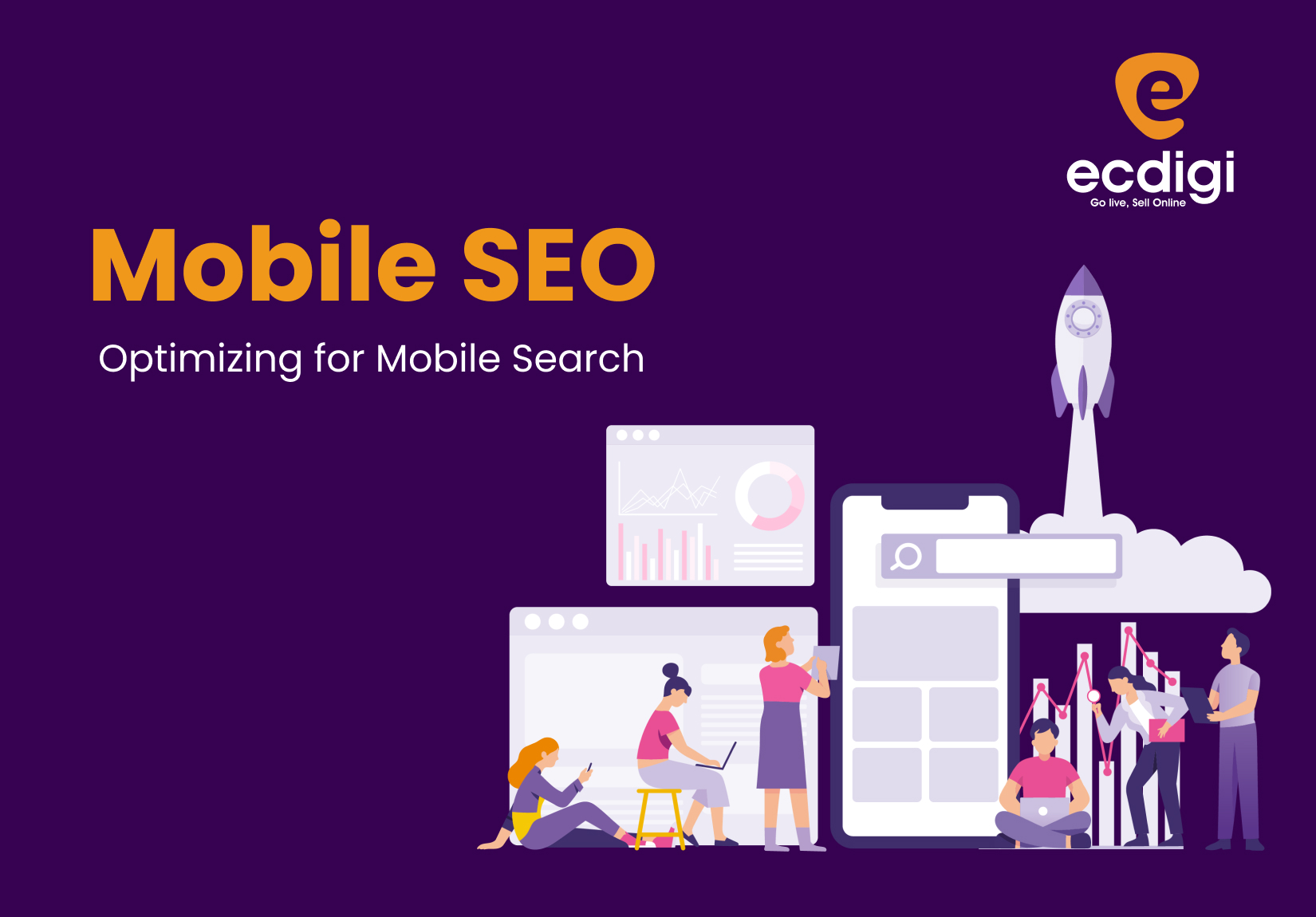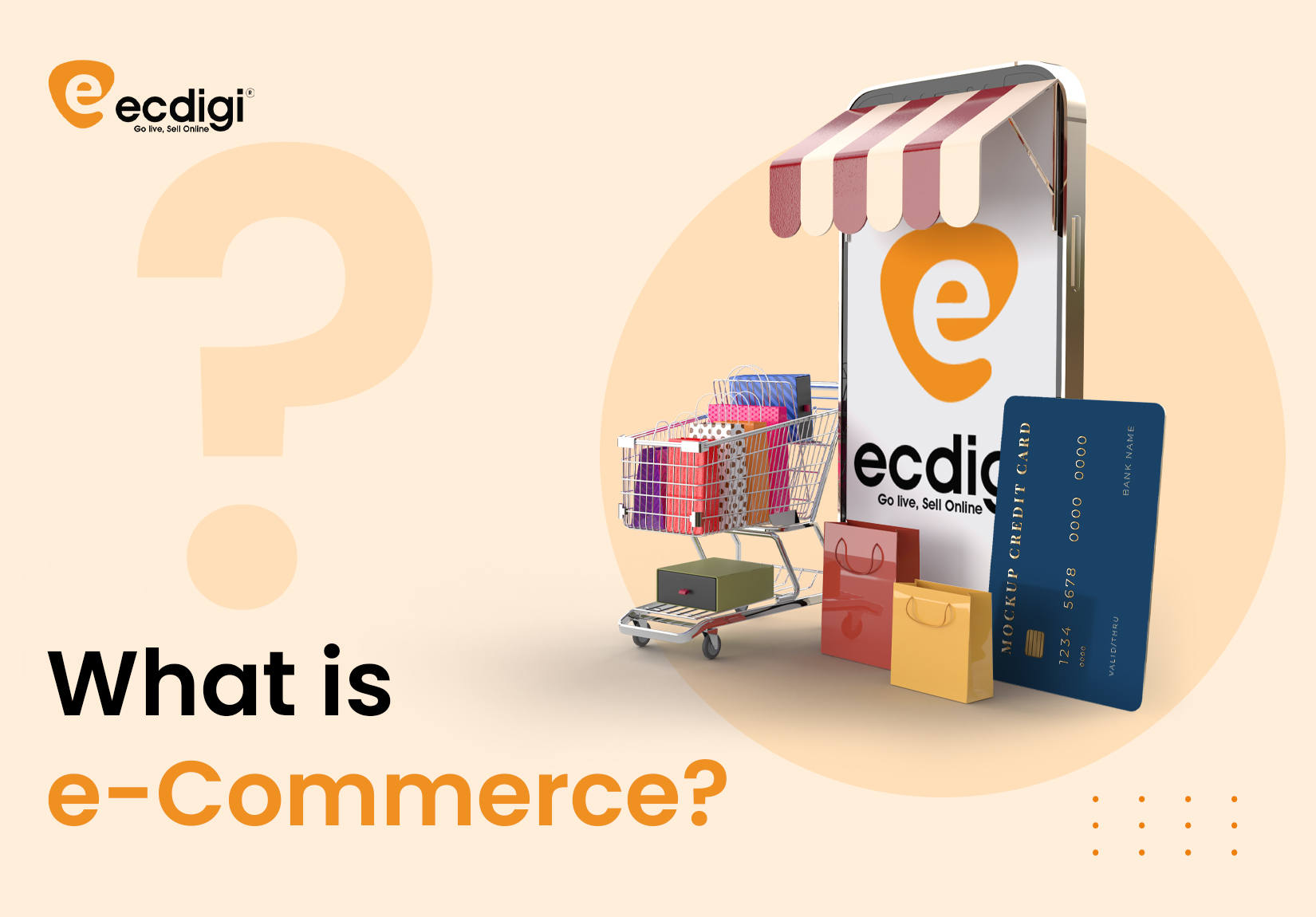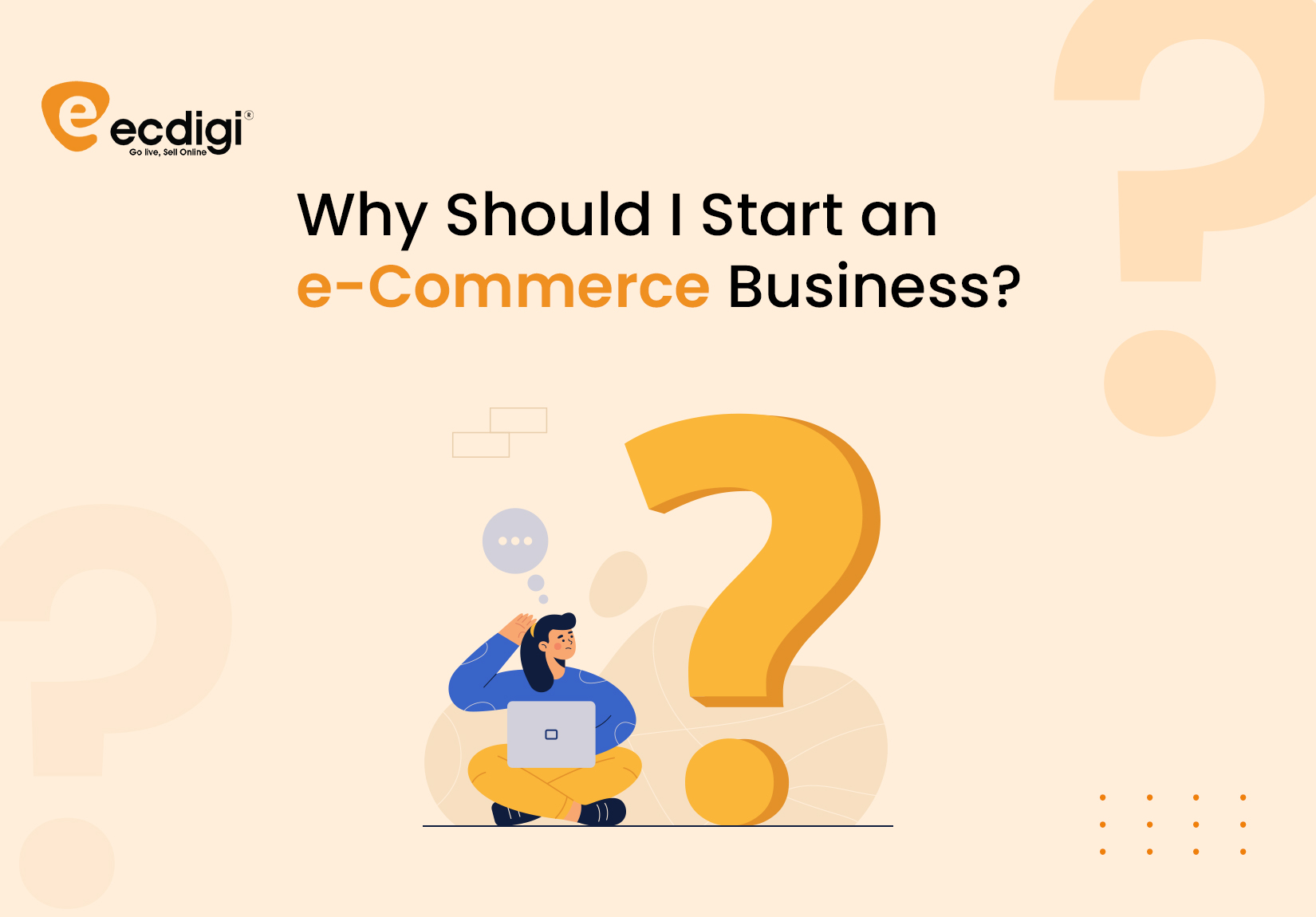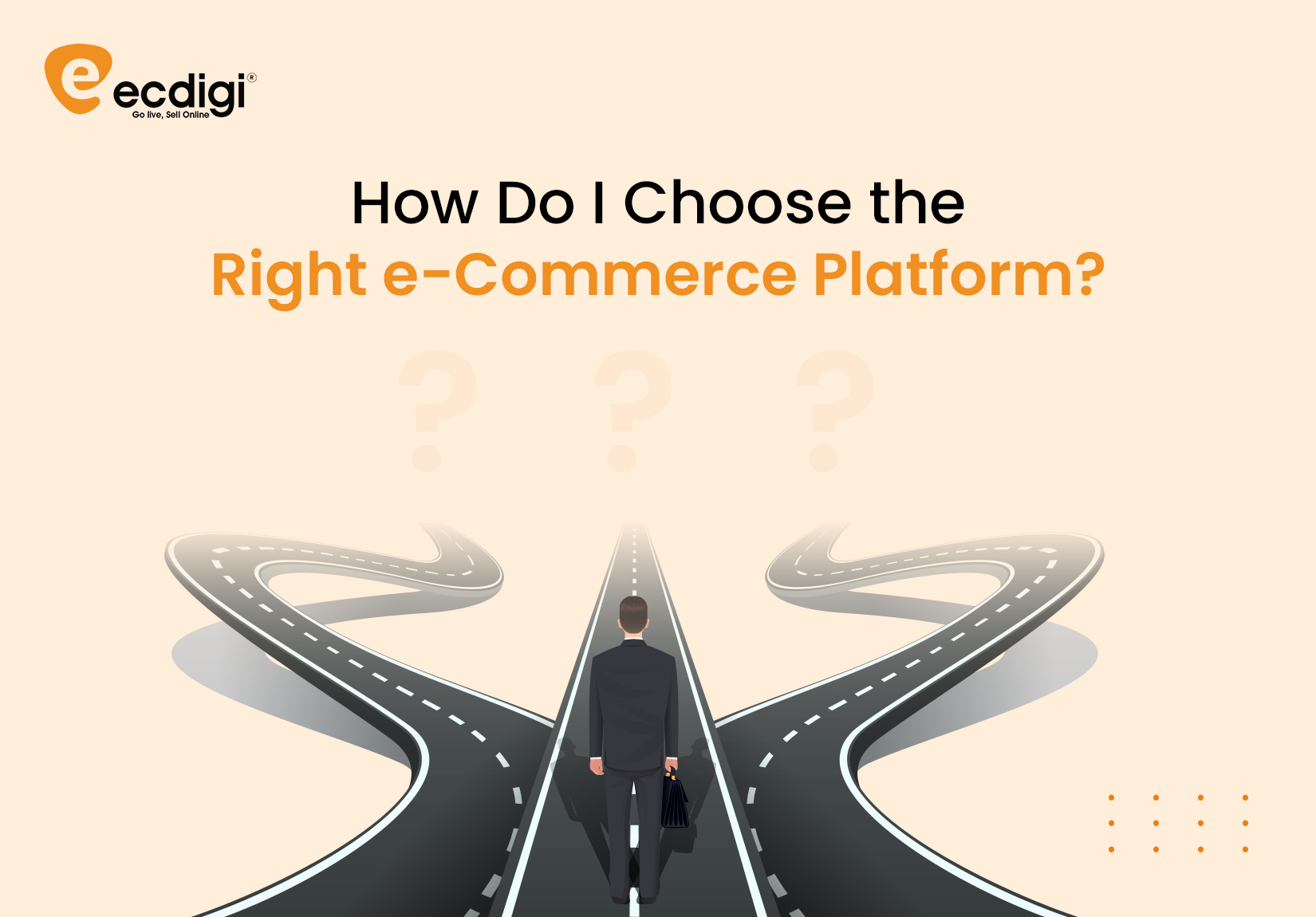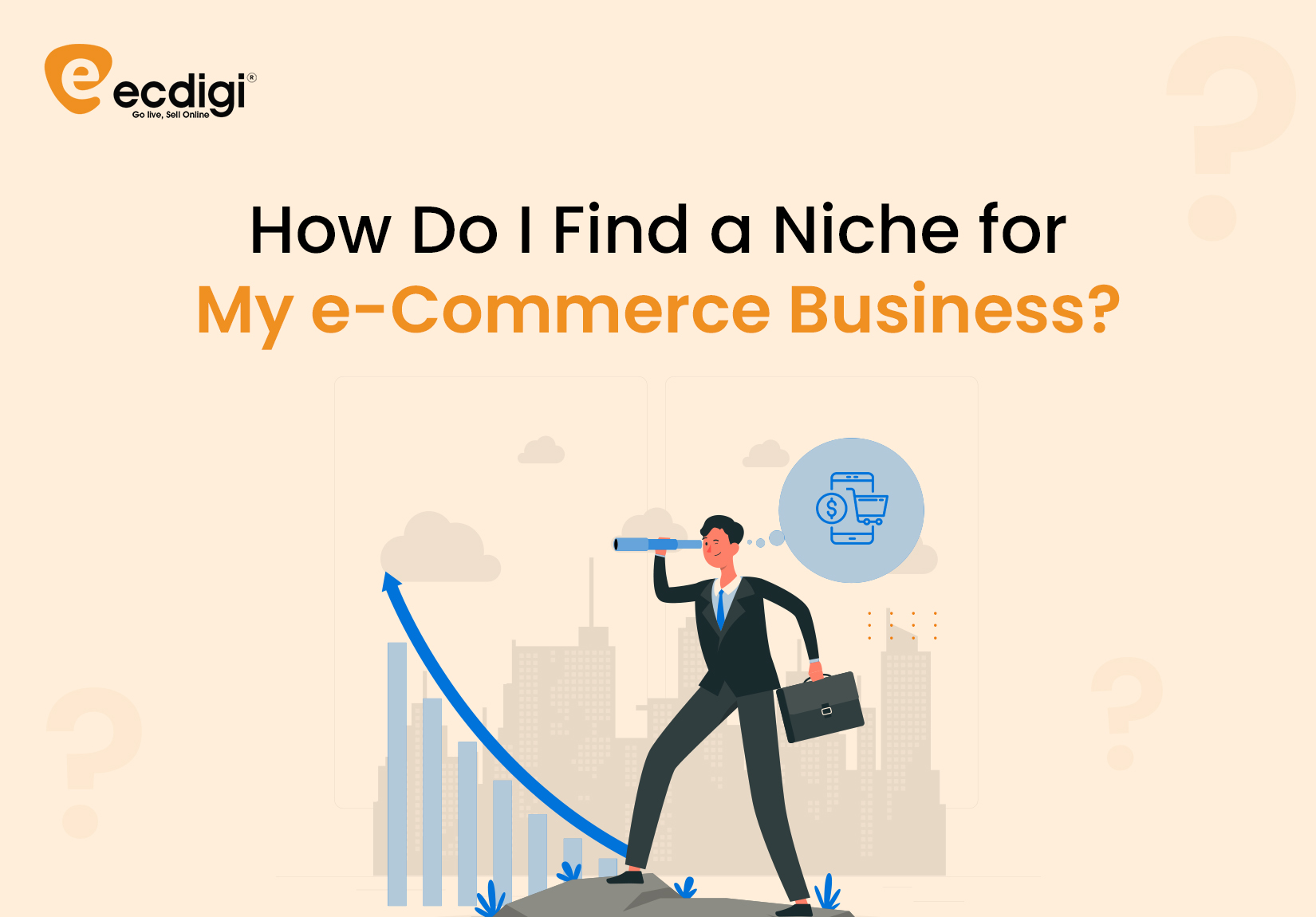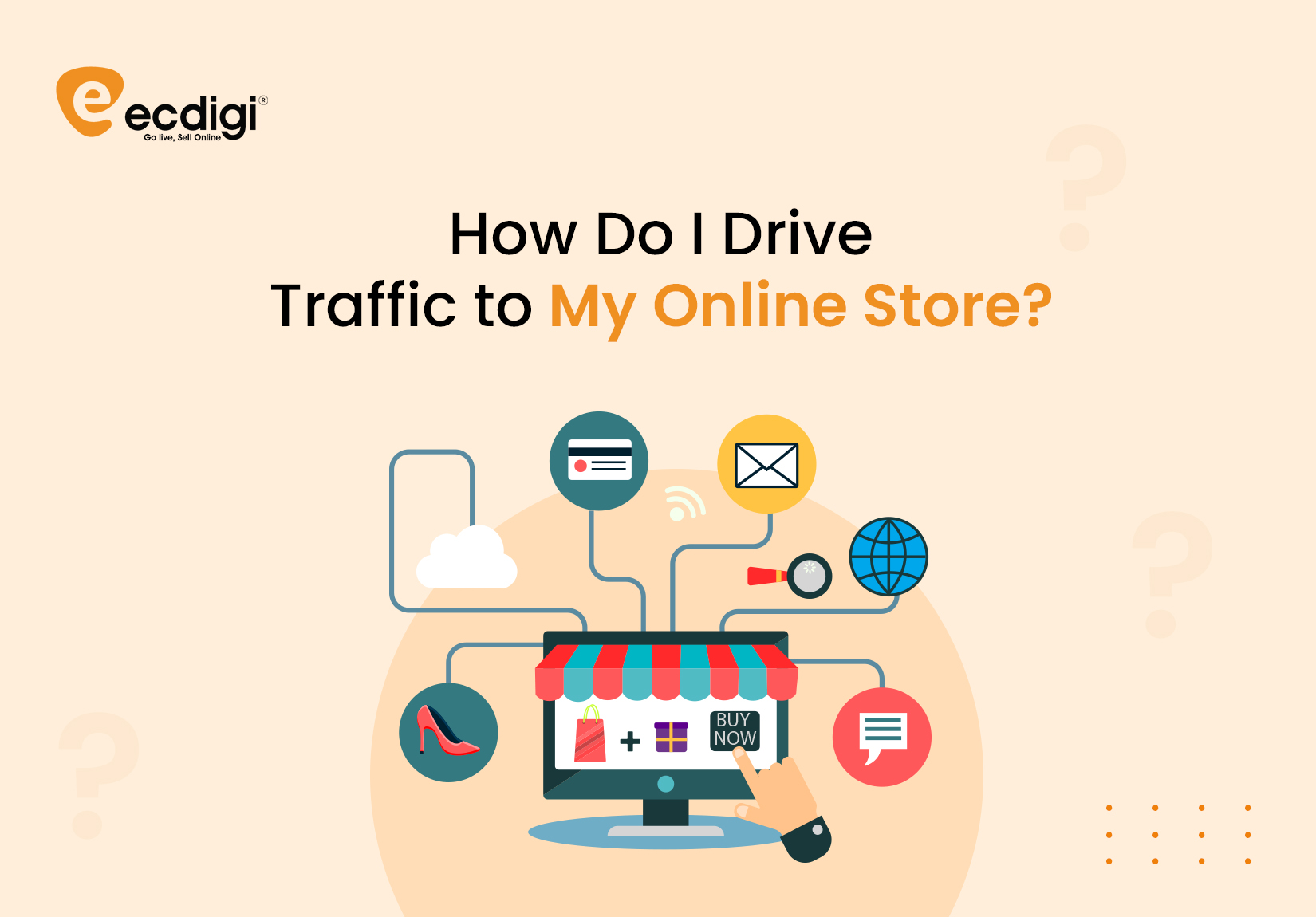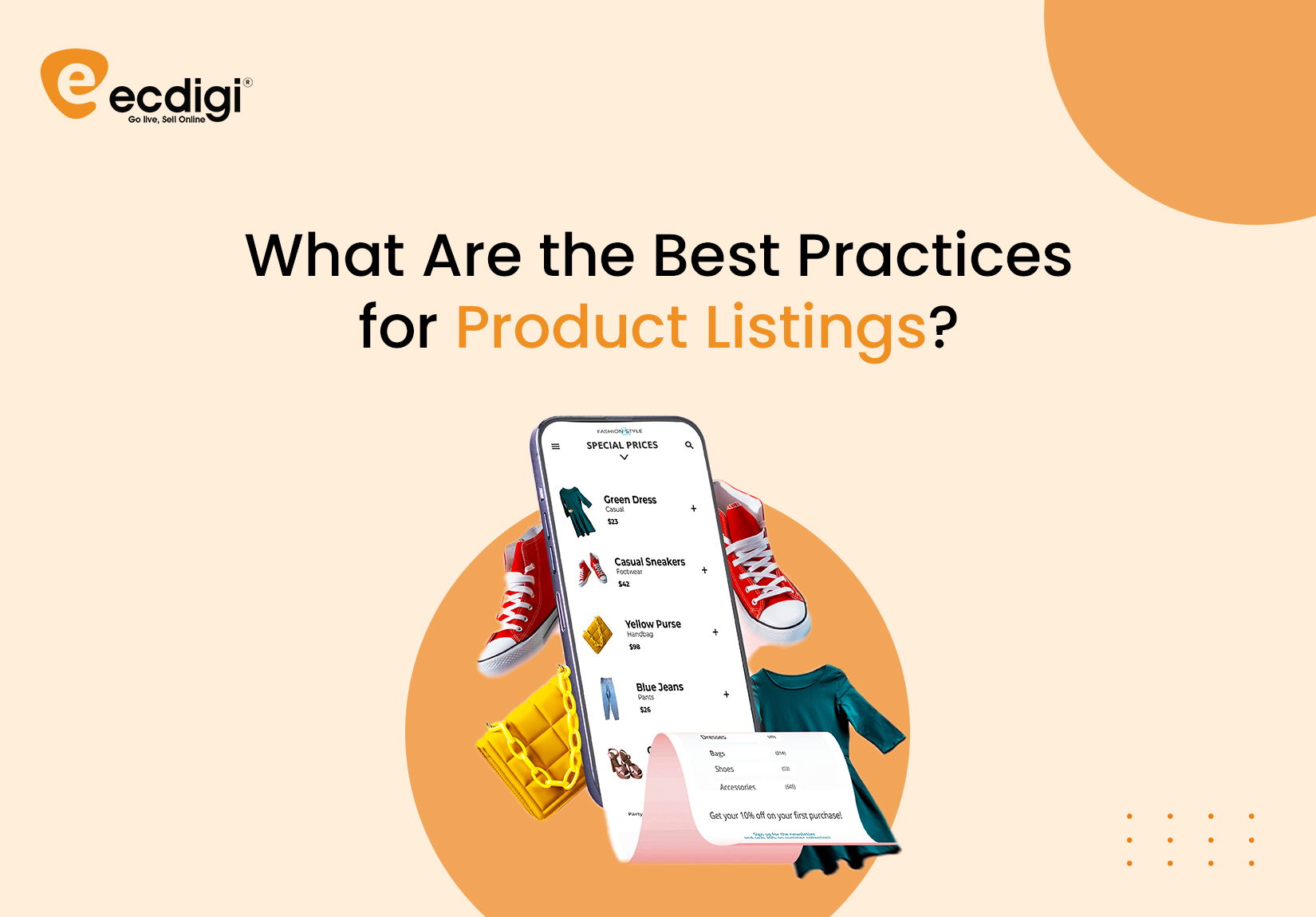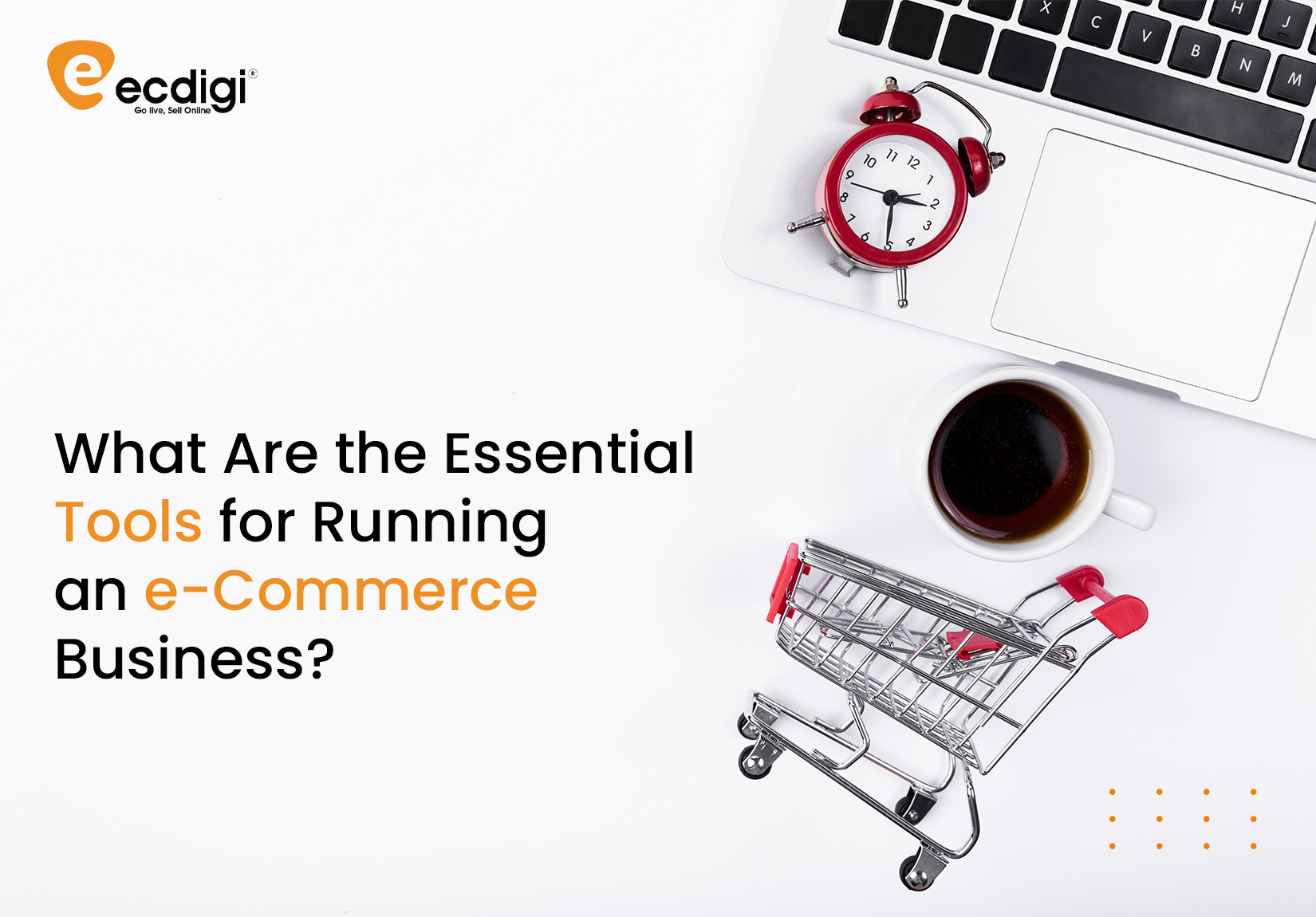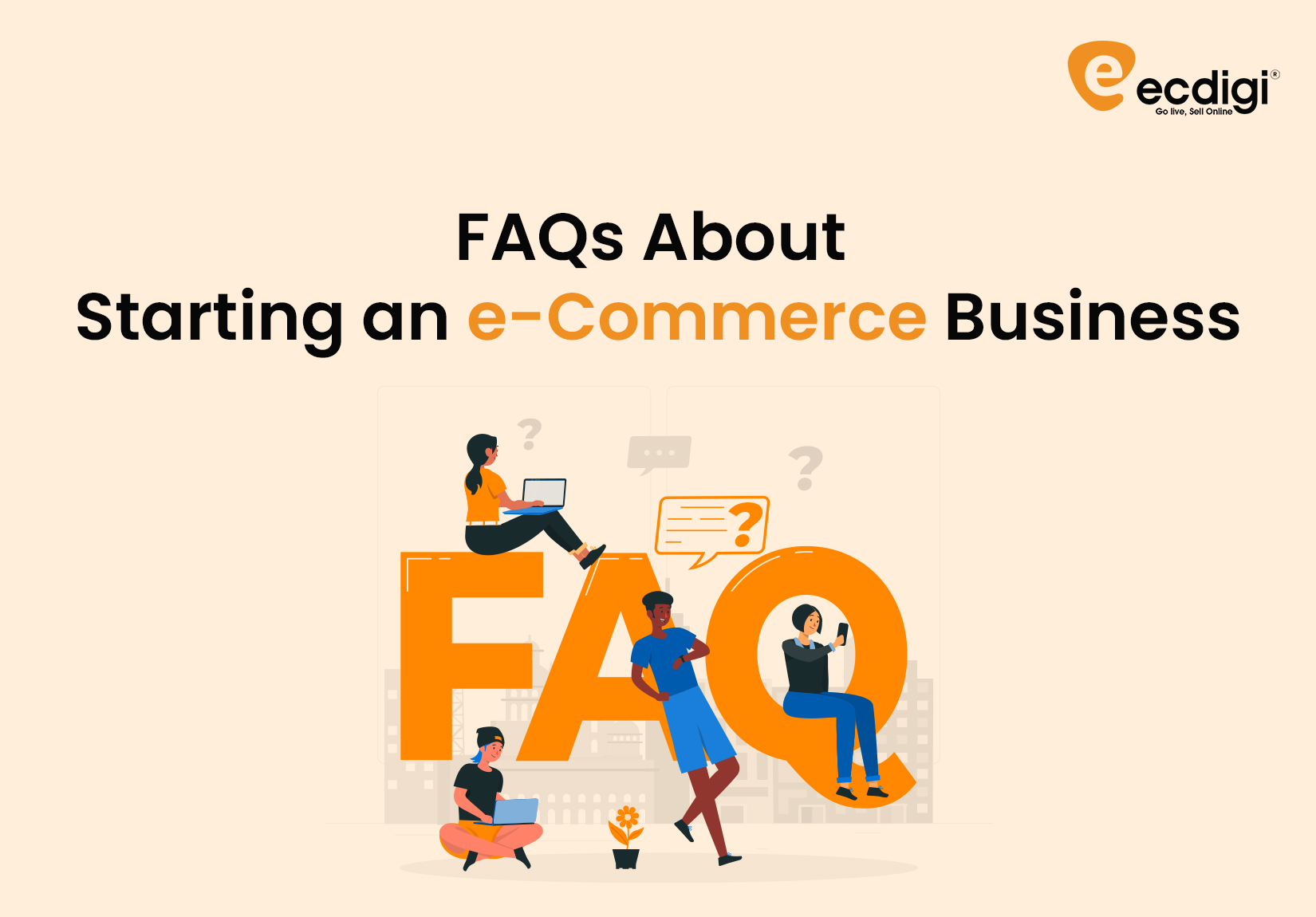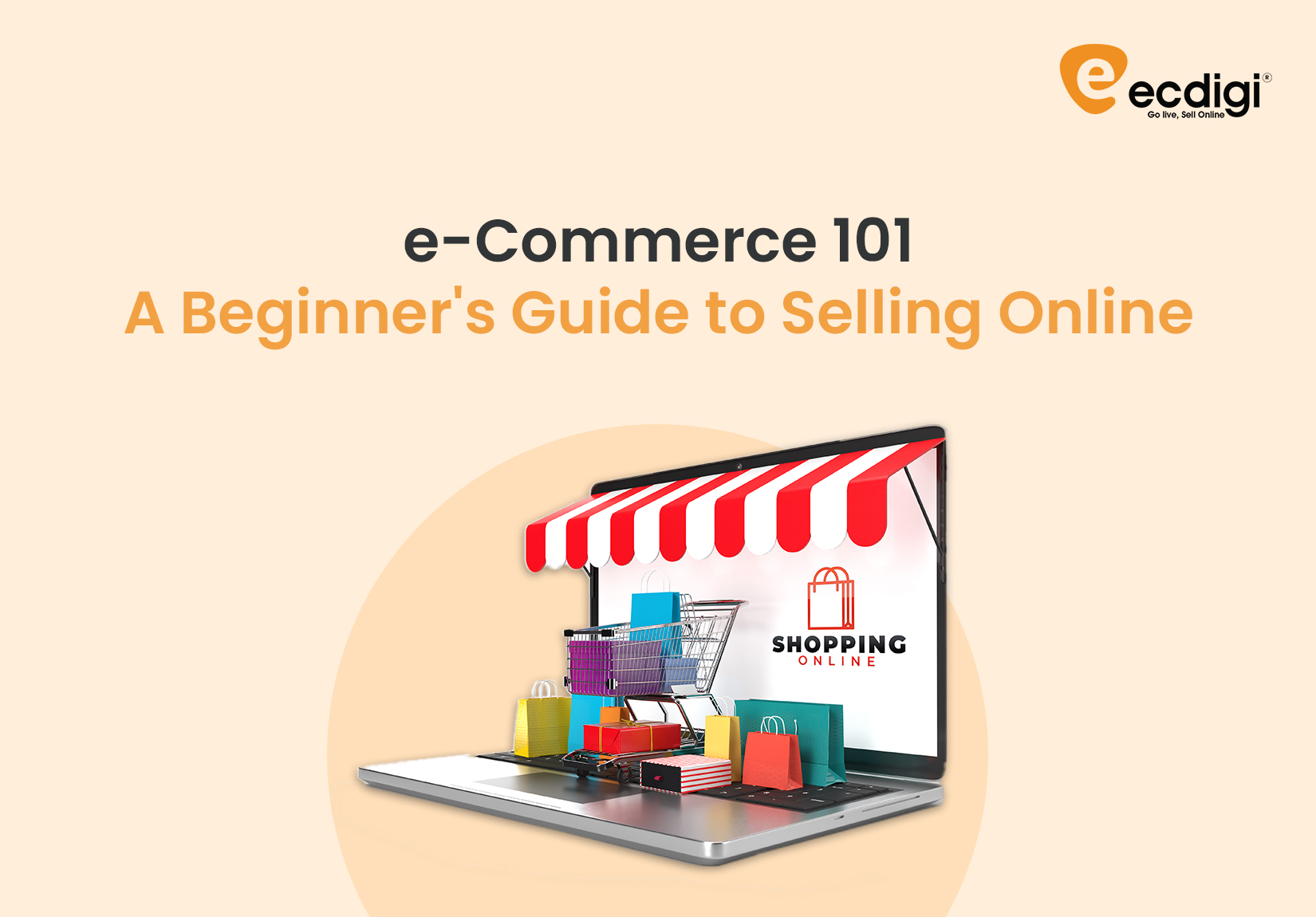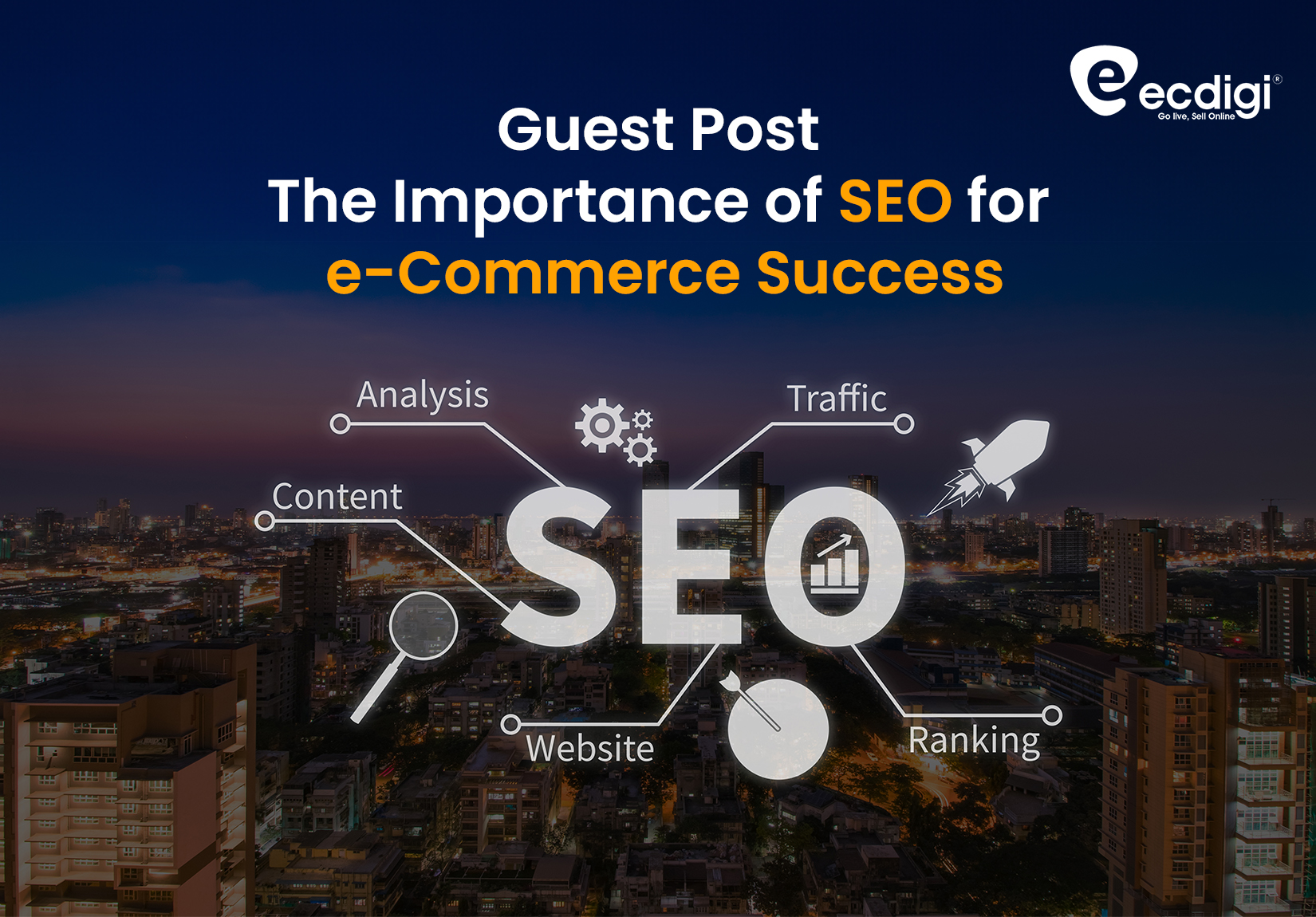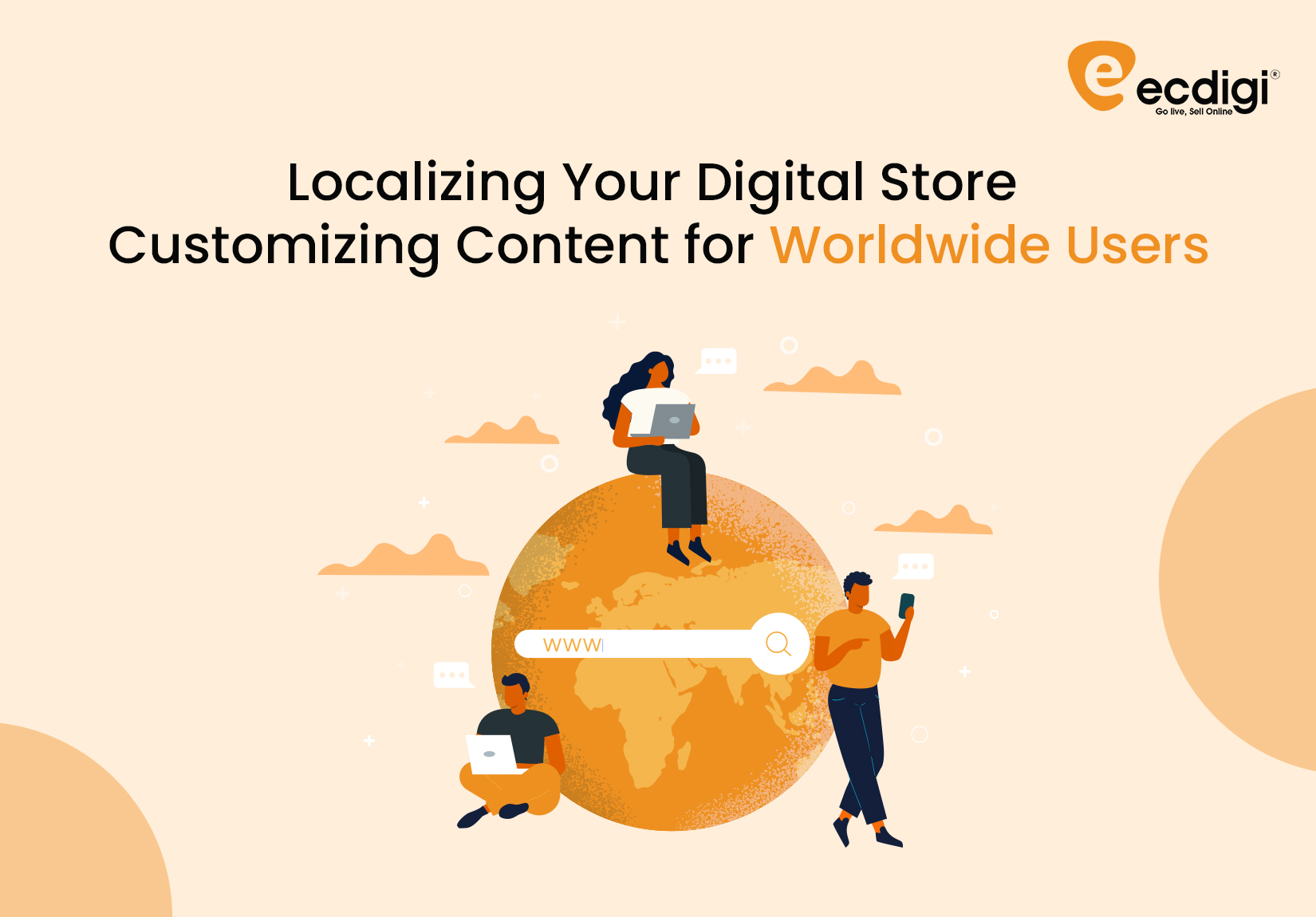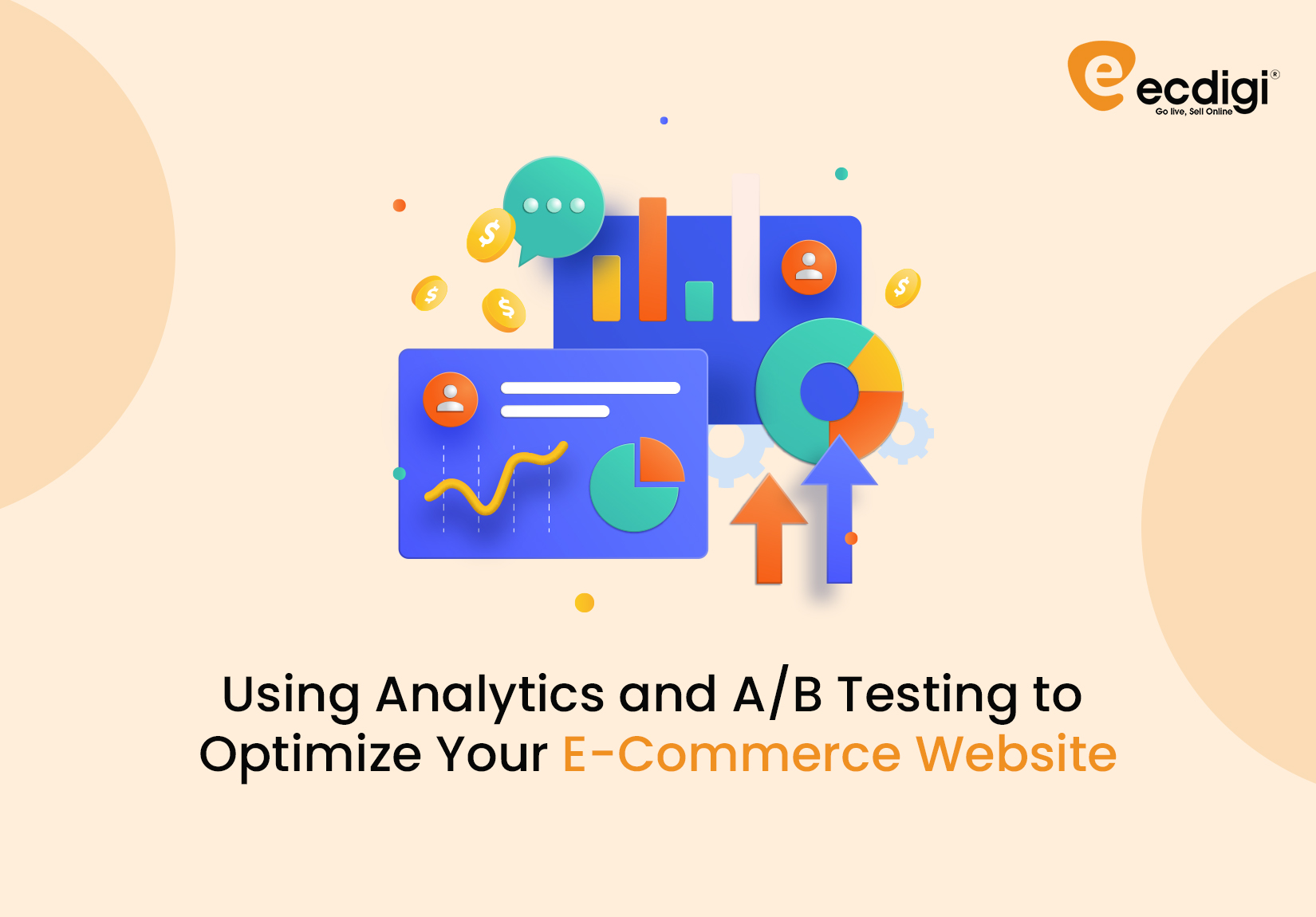Comparing e-Commerce Platforms: Which One is Right for You?
e-Commerce Platform | 23 May, 2024
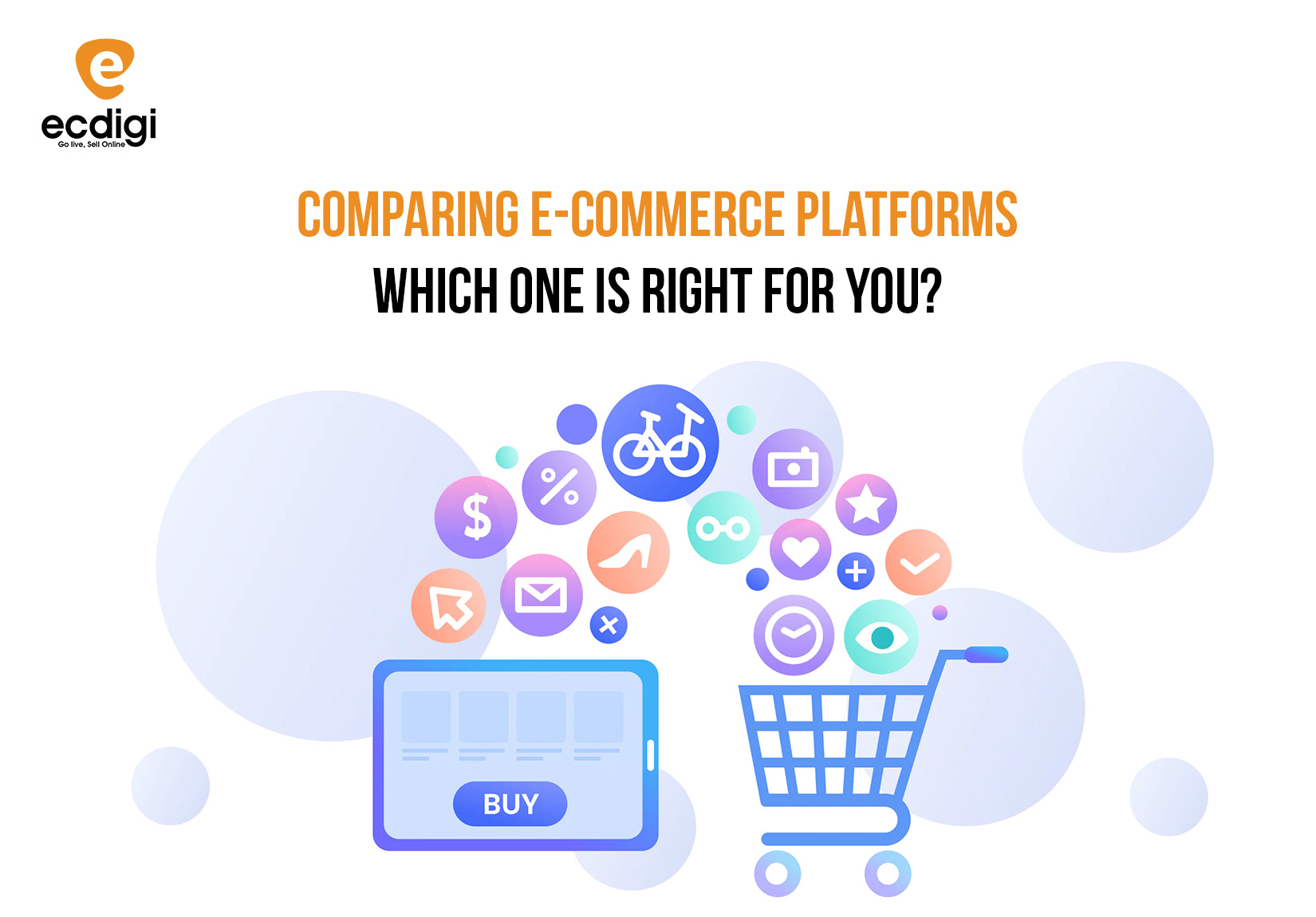
In today’s digital age, establishing anonline store is essential for businesses looking to expand their reach and increase sales.
With numerous e-Commerce platforms available, choosing the right one can be daunting.
This article delves into some of the most popular e-Commerce platforms, comparing their features, pricing, and ease of use, to help you determine which one is right for your business.
Understanding Your Needs
Before diving into the specifics of each platform, it's important to understand your own needs and goals.
Consider the following questions:
1. What is your budget?
2. How tech-savvy are you?
3. What kind of products are you selling?
4. How much customization do you need?
5. What features are essential for your business?
Answering these questions will provide a clearer picture of what you need in an e-Commerce platform.
Shopify
Overview
Shopify is one of the most popular e-Commerce platforms globally, known for its ease of use and comprehensive features. It's suitable for businesses of all sizes, from small startups to large enterprises.
Key Features
-
 Ease of Use: Shopify is user-friendly, making it easy for beginners to set up and manage an online store.
Ease of Use: Shopify is user-friendly, making it easy for beginners to set up and manage an online store.
-
 Customization:With a wide range of themes and an intuitive drag-and-drop editor, you can customize your store without needing extensive coding knowledge.
Customization:With a wide range of themes and an intuitive drag-and-drop editor, you can customize your store without needing extensive coding knowledge.
-
 App Store:Shopify's App Store offers numerous plugins to enhance functionality, from marketing tools to inventory management.
App Store:Shopify's App Store offers numerous plugins to enhance functionality, from marketing tools to inventory management.
-
 Payment Processing:Shopify Payments integrates seamlessly, though you can also use third-party gateways.
Payment Processing:Shopify Payments integrates seamlessly, though you can also use third-party gateways.
-
 Customization:With a wide range of themes and an intuitive drag-and-drop editor, you can customize your store without needing extensive coding knowledge.
Customization:With a wide range of themes and an intuitive drag-and-drop editor, you can customize your store without needing extensive coding knowledge.
-
 Customization:With a wide range of themes and an intuitive drag-and-drop editor, you can customize your store without needing extensive coding knowledge.
Customization:With a wide range of themes and an intuitive drag-and-drop editor, you can customize your store without needing extensive coding knowledge.
Pricing
Shopify offers a range of pricing plans:

Source : www.shopify.com
Each plan includes different levels of features, with higher tiers offering more advanced options like professional reports and third-party calculated shipping rates.
Pros and Cons
Pros:
-
 User-friendly interface
User-friendly interface
-
 Extensive app ecosystem
Extensive app ecosystem
-
 Reliable and secure
Reliable and secure
Cons:
-
 Transaction fees if not using Shopify Payments
Transaction fees if not using Shopify Payments
-
 Limited customization without coding
Limited customization without coding
Who Should Use Shopify?
Shopify is ideal for businesses that want a hassle-free setup with plenty of room for growth. It's perfect for those who prioritize ease of use and access to a wide range of features through third-party apps.
WooCommerce
Overview
WooCommerce is a WordPress plugin that transforms a standard WordPress site into a fully functional e-Commerce store. It's highly customizable and flexible, making it a favorite among those who are comfortable with WordPress.

Source : www.shopify.com
Key Features
-
 Customization: WooCommerce is highly customizable, with numerous themes and plugins available to tailor your store to your exact needs.
Customization: WooCommerce is highly customizable, with numerous themes and plugins available to tailor your store to your exact needs.
-
 Integration: Seamlessly integrates with WordPress, providing access to a vast ecosystem of themes and plugins.
Integration: Seamlessly integrates with WordPress, providing access to a vast ecosystem of themes and plugins.
-
 Open Source: Being open source means you have complete control over your store's functionality and appearance.
Open Source: Being open source means you have complete control over your store's functionality and appearance.
Pricing
WooCommerce itself is free, but you may incur costs for:
-
 Hosting: $3.95 to $29.95/month
Hosting: $3.95 to $29.95/month
-
 Themes: $0 to $100+ (one-time or subscription)
Themes: $0 to $100+ (one-time or subscription)
-
 Plugins: Varies widely
Plugins: Varies widely
Pros and Cons
Pros:
-
 Highly customizable
Highly customizable
-
 Large community and support
Large community and support
-
 Flexibility with hosting and design
Flexibility with hosting and design
Cons:
-
 Steeper learning curve for beginners
Steeper learning curve for beginners
-
 Additional costs for themes, plugins, and hosting
Additional costs for themes, plugins, and hosting
Who Should Use WooCommerce?
WooCommerce is perfect for businesses that already use WordPress or want complete control over their store’s customization. It's ideal for those who have some technical knowledge or are willing to learn.
BigCommerce
Overview
BigCommerce is a robust e-Commerce platform that offers a wealth of features out of the box. It's designed for businesses looking to scale quickly and efficiently.
Key Features
-
 Scalability: BigCommerce is built to handle large catalogs and high traffic, making it ideal for rapidly growing businesses.
Scalability: BigCommerce is built to handle large catalogs and high traffic, making it ideal for rapidly growing businesses.
-
 Built-in Features: Offers many features as standard, reducing the need for additional plugins.
Built-in Features: Offers many features as standard, reducing the need for additional plugins.
-
 SEO: Advanced SEO tools help improve your store’s search engine rankings.
SEO: Advanced SEO tools help improve your store’s search engine rankings.
Pricing
BigCommerce pricing plans are:

Source : www.bigcommerce.com
Pros and Cons
Pros:
-
 Scalable for growing businesses
Scalable for growing businesses
-
 Comprehensive built-in features
Comprehensive built-in features
-
 No transaction fees
No transaction fees
Cons:
-
 Limited themes compared to competitors
Limited themes compared to competitors
-
 Can be complex for beginners
Can be complex for beginners
Who Should Use BigCommerce?
BigCommerce is best for businesses looking to scale quickly and efficiently. It's suitable for those who need robust features out of the box and are willing to invest in a slightly steeper learning curve.
Wix eCommerce
Overview
Wix is primarily known as a website builder, but its e-Commerce capabilities have grown significantly. It's a great option for small businesses and creatives looking for an easy-to-use platform.
Key Features
-
 Drag-and-Drop Editor: Intuitive design editor makes it easy to create a visually appealing store.
Drag-and-Drop Editor: Intuitive design editor makes it easy to create a visually appealing store.
-
 Templates: Offers a wide range of customizable templates.
Templates: Offers a wide range of customizable templates.
-
 Built-in Marketing Tools: Includes SEO, email marketing, and social media tools.
Built-in Marketing Tools: Includes SEO, email marketing, and social media tools.
Pricing
Wix eCommerce plans include:

Source : www.wix.com
Pros and Cons
Pros:
-
 Easy to use
Easy to use
-
 Attractive, customizable templates
Attractive, customizable templates
-
 Integrated marketing tools
Integrated marketing tools
Cons:
-
 Less scalable than some competitors
Less scalable than some competitors
-
 Limited advanced features
Limited advanced features
Who Should Use Wix eCommerce?
Wix eCommerce is perfect for small businesses and creatives looking for an easy-to-use platform with attractive design options. It’s ideal for those who need a simple, visually appealing online store.
ecDigi
Overview
ecDigi is a ready-made e-Commerce platform designed to provide a comprehensive solution for online businesses. It offers a range of features that cater to both small and large enterprises, focusing on ease of use and scalability.
Key Features
-
 User-Friendly Interface: Designed to be intuitive, making it easy for anyone to set up and manage their store.
User-Friendly Interface: Designed to be intuitive, making it easy for anyone to set up and manage their store.
-
 Readymade Templates: Offers a variety of templates and a drag-and-drop editor for easy customization.
Readymade Templates: Offers a variety of templates and a drag-and-drop editor for easy customization.
-
 Payment Processing: Integrates with multiple payment gateways, ensuring secure transactions.
Payment Processing: Integrates with multiple payment gateways, ensuring secure transactions.
-
 SEO Tools: Built-in SEO features to help your store rank higher in search engine results.
SEO Tools: Built-in SEO features to help your store rank higher in search engine results.
-
 Mobile Optimization: Ensures that your store looks and functions well on mobile devices.
Mobile Optimization: Ensures that your store looks and functions well on mobile devices.
Pricing
ecDigi offers competitive pricing plans:

Pros and Cons
Pros:
-
 Affordable pricing
Affordable pricing
-
 Easy to use
Easy to use
-
 Comprehensive feature set
Comprehensive feature set
-
 Strong customer support
Strong customer support
Cons:
-
 Newer platform with fewer integrations
Newer platform with fewer integrations
-
 Limited community resources compared to established platforms
Limited community resources compared to established platforms
Who Should Use ecDigi?
ecDigi is perfect for businesses looking for an affordable and user-friendly e-Commerce solution. It’s ideal for startups and small to medium-sized businesses that need a comprehensive set of features without breaking the bank. If you’re looking for a platform that offers strong support and is easy to navigate, ecDigi is a great option.
Magento
Overview
Magento is a powerful, open-source e-Commerce platform used by some of the world’s largest brands. It’s highly customizable and scalable, but requires technical expertise.
Key Features
-
 Customization: Magento offers unparalleled customization options.
Customization: Magento offers unparalleled customization options.
-
 Scalability: Can handle large, complex catalogs and high traffic volumes.
Scalability: Can handle large, complex catalogs and high traffic volumes.
-
 SEO: Advanced SEO features to boost search engine visibility.
SEO: Advanced SEO features to boost search engine visibility.
Pricing
Magento offers two main versions:
-
 Magento Open Source: Free
Magento Open Source: Free
-
 Magento Commerce: Starts at $22,000/year
Magento Commerce: Starts at $22,000/year
Pros and Cons
Pros:
-
 Highly customizable and scalable
Highly customizable and scalable
-
 Extensive feature set
Extensive feature set
-
 Strong community support
Strong community support
Cons:
-
 Requires technical expertise
Requires technical expertise
-
 High cost for Magento Commerce
High cost for Magento Commerce
Who Should Use Magento?
Magento is ideal for large businesses with complex needs and technical resources. It’s perfect for those who need a highly customizable and scalable platform.
Squarespace Commerce
Overview
Squarespace is known for its beautiful, design-focused templates. Its e-Commerce capabilities have evolved, making it a strong contender for small to medium-sized businesses.
Key Features
-
 Design: Magento offers unparalleled customization options.
Design: Magento offers unparalleled customization options.
-
 Ease of Use: Intuitive drag-and-drop builder.
Ease of Use: Intuitive drag-and-drop builder.
-
 Built-in Tools: Includes SEO, analytics, and marketing tools.
Built-in Tools: Includes SEO, analytics, and marketing tools.
Pricing
Squarespace Commerce plans are:

Source : www.squarespace.com
Pros and Cons
Pros:
-
 Beautiful, professional templates
Beautiful, professional templates
-
 Easy to use
Easy to use
-
 Comprehensive built-in tools
Comprehensive built-in tools
Cons:
-
 Limited scalability
Limited scalability
-
 Fewer integrations compared to competitors
Fewer integrations compared to competitors
Who Should Use Squarespace Commerce?
Squarespace Commerce is ideal for businesses that prioritize design and ease of use. It’s perfect for small to medium-sized businesses that want a professional, visually appealing online store.
Conclusion
Choosing the right e-Commerce platform depends on your specific needs, budget, and technical expertise. Here's a quick summary to help guide your decision:
-
 Shopify: Great for all business sizes, prioritizes ease of use and extensive app integrations.
Shopify: Great for all business sizes, prioritizes ease of use and extensive app integrations.
-
 WooCommerce: Perfect for WordPress users who want flexibility and customization.
WooCommerce: Perfect for WordPress users who want flexibility and customization.
-
 BigCommerce: Ideal for businesses looking to scale quickly with robust features.
BigCommerce: Ideal for businesses looking to scale quickly with robust features.
-
 Wix eCommerce: Best for small businesses and creatives needing an easy-to-use, visually appealing platform.
Wix eCommerce: Best for small businesses and creatives needing an easy-to-use, visually appealing platform.
-
 ecDigi: Ideal for businesses seeking an affordable, user-friendly platform with a comprehensive feature set.
ecDigi: Ideal for businesses seeking an affordable, user-friendly platform with a comprehensive feature set.
-
 Magento: Suitable for large businesses with complex needs and technical resources.
Magento: Suitable for large businesses with complex needs and technical resources.
-
 Squarespace Commerce: Perfect for those who prioritize design and ease of use for small to medium-sized businesses.
Squarespace Commerce: Perfect for those who prioritize design and ease of use for small to medium-sized businesses.
By carefully considering your business requirements and comparing these platforms’ features, you can find the e-Commerce solution that best fits your needs, setting the stage for your online success.


